Agriculture & Environment
Prof. Bernard Bashaasha hands over to New CAES Principal, Dr. Gorettie N. Nabanoga
Published
3 years agoon
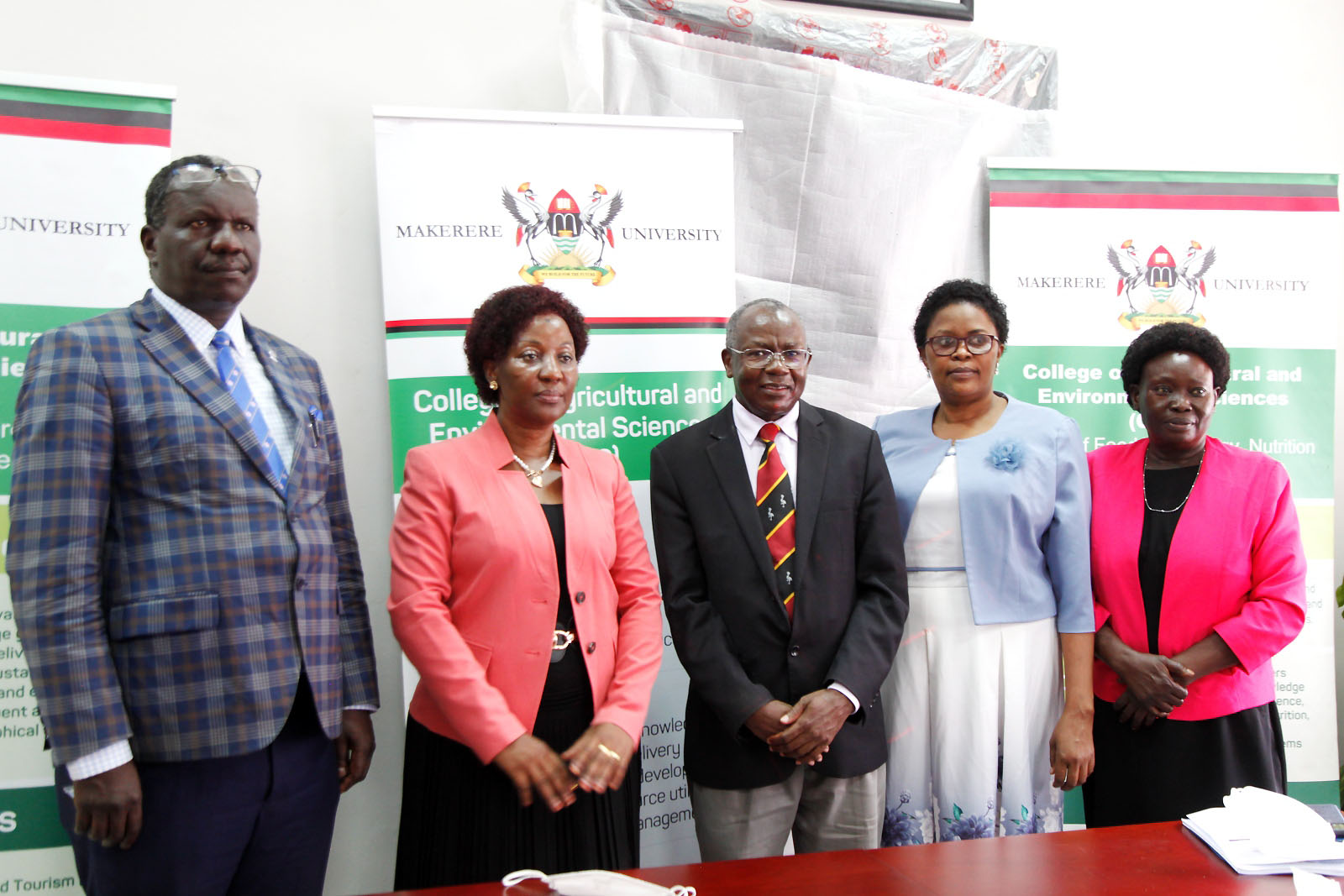
Makerere University Chancellor, Prof. Ezra Suruma appointed Dr. Gorettie N. Nabanoga as the next Principal of the College of Agricultural and Environmental Sciences (CAES), Makerere University effective 1st February 2022. She is the first female Principal of CAES and will hold the position for a period of four years as stipulated in the Universities and Other Tertiary Institutions (Management of Constituent Colleges of Makerere University) Statute, 2012. Dr. Nabanoga who has been Deputy Principal, CAES takes on from Prof. Bernard Bashaasha who has served in the position since August 2013.
CAES Structure
CAES is composed of three schools and eight Departments. The schools are; Agricultural Sciences; Forestry, Environmental and Geographical Sciences; and Food Technology, Nutrition and Bio-Engineering. The School of Agricultural Sciences is composed of three Departments namely; Agricultural Production; Extension and Innovation Studies; and Agribusiness and Natural Resource Economics. The Departments under the School of Forestry, Environmental and Geographical Sciences include; Forestry, Biodiversity and Tourism; Environmental Management; and Geography, Geo-informatics and Climatic Sciences. The School of Food Technology, Nutrition and Bio-Engineering is made up of two Departments-Food Technology and Nutrition; and Agricultural and Biosystems Engineering.
The College also hosts several research institutes and centres namely; Makerere University Agricultural Research Institute Kabanyolo (MUARIK), the Makerere University Biological Field Station (MUBFS), the Food Technology and Business Incubation Centre (FTBIC), Makerere University Regional Centre for Crop Improvement (MaRCCI), Makerere University Centre of Excellence in Waste Management, Makerere University Centre for Climate Change Research and Innovations (MUCCRI), Makerere University Centre for Soybean Improvement and Development (MAKCSID), the National Biodiversity Data Bank (NBDB) – Uganda, Uganda Forestry Resources and Institutions Centre (UFRIC) – Makerere University, Continuing Agricultural Education Centre (CAEC), and a Consortium for Enhancing University Responsiveness to Agribusiness Development (CURAD). Others are; the Centre for Mountain Resources and Disaster Management, Rangeland Resources Centre, and the Agricultural Policy Analysis Centre. In addition, the College is composed of several administrative units including; the Office of the Bursar, Office of the College Registrar, Human Resource Office, Procurement and Communications.
During her four-year tenure as Principal, CAES, Dr. Gorettie N. Nabanoga will provide academic and administrative leadership to 373 members of staff and over 3,000 students in the aforementioned Units.
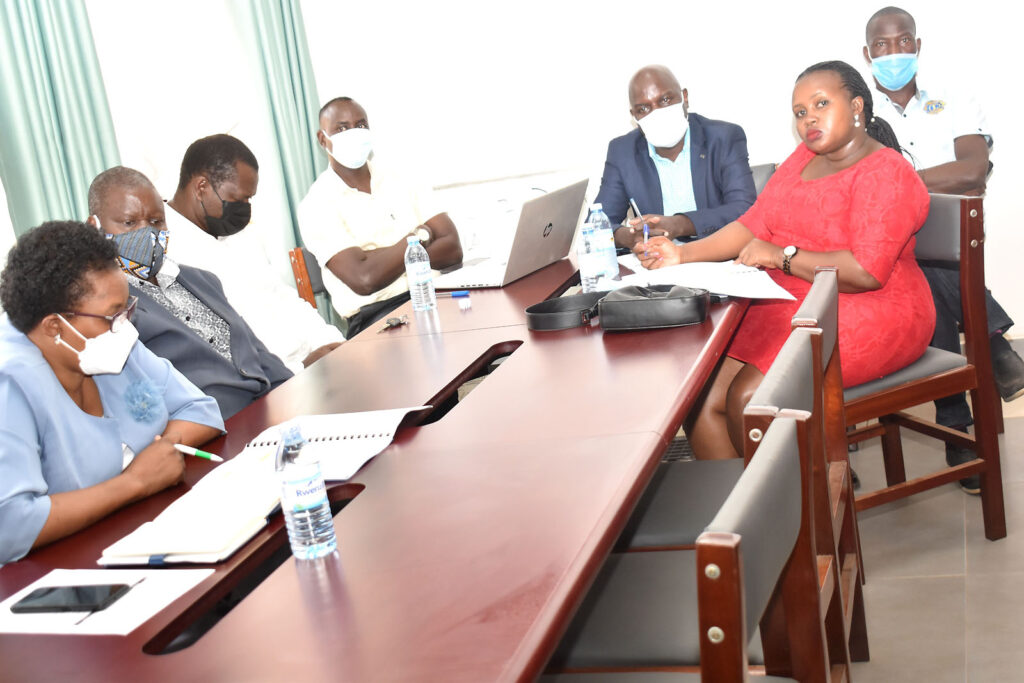
Handover ceremony
Today, 15th February 2022, the outgoing Principal, Prof. Bernard Bashaasha handed over to the new Principal at a ceremony witnessed by the Representative of the University Secretary, Ms. Consolata Komugisha; the Director Internal Audit, Mr. Walter Yorac Nono; as well as the Deans and Heads of Academic and Administrative Units at the College.
Presenting his handover report, Prof. Bashaasha congratulated the new Principal upon her appointment and briefed her on a number of issues relating to the status of CAES programmes; assets; ICT infrastructure; student enrolment; registration and graduation statistics; E-Learning; research, innovations, and outreach programmes; online presence and publicity; human resources; the financial status of the college; as well as the achievements registered; challenges experienced over the years, and the pending tasks.
Achievements registered during Prof. Bashaasha’s term of office
Key achievements registered under Prof. Bashaasha include increased student enrolment. As at December 2021, CAES had a total of 2,922 registered students. Of these 2,758 (94.4%) are undergraduate students and 164 (5.6%) are graduate students (Masters and PhD). Other achievements include growth in graduation statistics from 362 undergraduates in 2013 to 467 in 2021, and 122 graduate students in 2021 (with 21 PhDs) from 83 in 2013 with only five PhDs. There has also been accelerated research output resulting into a total of 331 publications in 2021 from 164 in 2018. “The College also revamped the Makerere University Agricultural Research Institute Kabanyolo (MUARIK) Bulletin into Makerere University Journal of Agricultural and Environmental Sciences (MUJAES),” Prof. Bashaasha noted. According to the outgoing Principal, the College has widened research collaborations locally and internationally, established a research grants office and laid the foundation for the CAES Research and Ethics Committee (REC) to support the ethical aspects of research. “An interim REC Committee has been appointed and the application is with the National Council for Higher Education,” he explained.
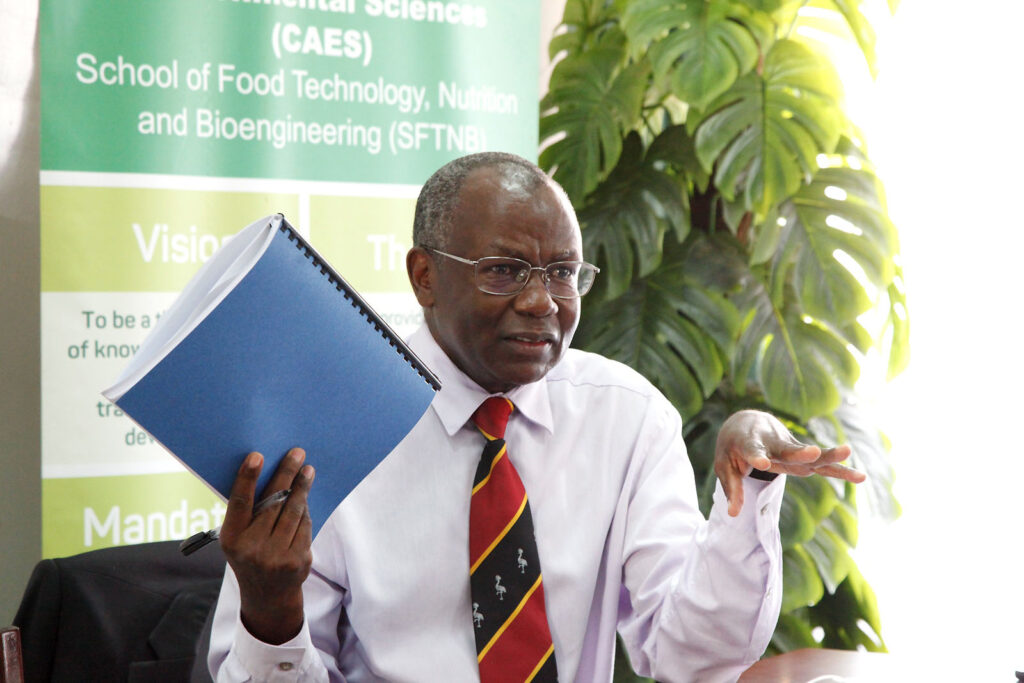
Other achievements include; enhanced visibility of CAES through the website and other online platforms, the college quarterly newsletter, annual reports and other IEC materials; rehabilitation of research laboratories and facilities at MUARIK including the Diary Value Chain; establishment of a Botanical Garden at MUARIK, increased number of research centres and institutes; enhanced transport facilities; 50 Zoom licenses procured to support blended teaching and learning; increase in number of programmes to 13 undergraduate and 24 graduate – a total of 6 new programmes have been developed during the last 8 years and another 6 programmes are in the pipeline; increase in the number of research institutes and centres; increase in the number of high level research innovations; procurement of a standby generator for the College; and above all enhanced teamwork at the College. “We inherited a college divided in opinion and strategy. We have managed the diversity and coalesced into one CAES family working together for the good of the College, University and nation,” he said.
Key Research, Innovations and Outreaches
The College of Agricultural and Environmental Sciences (CAES) undertakes basic, strategic and applied research and development in the broader areas of agriculture, food technology and nutrition, forest management, and environment and natural resources management.
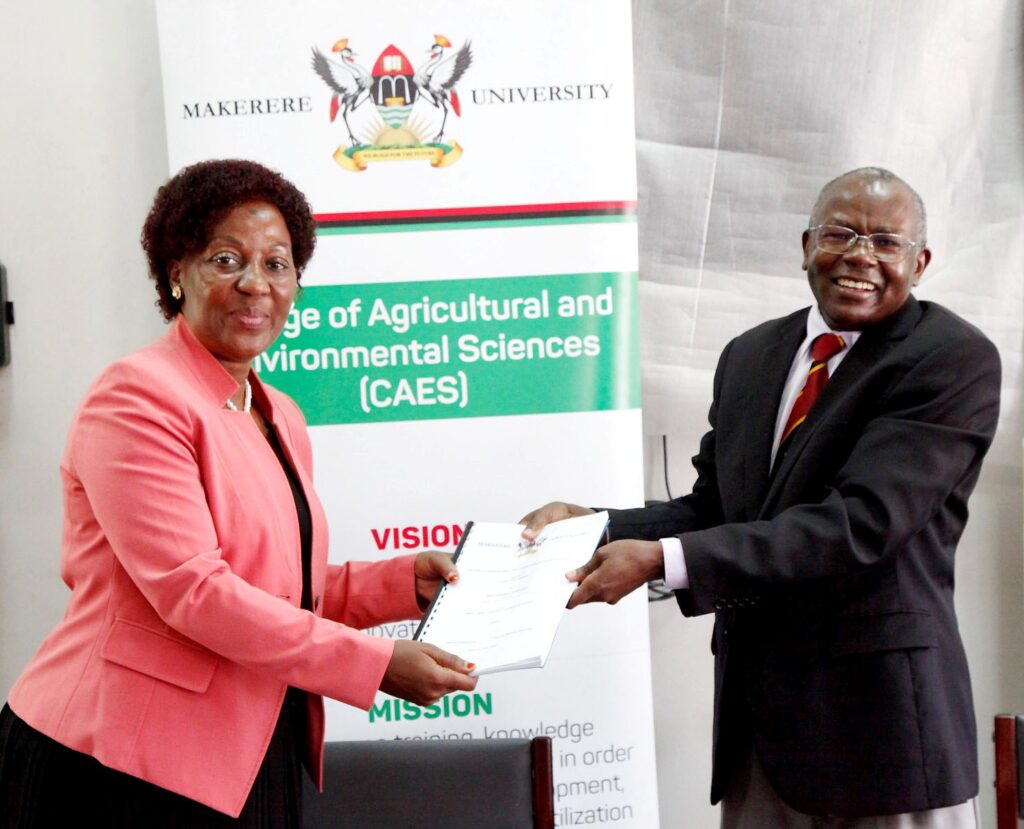
In agriculture, research and development programmes have focused on enhancing farmer-centred approaches, climate smart agricultural systems, value chain improvement for the achievement of food and nutritional security, livelihood improvement and overall rural development. The College has also pioneered R&D in biotechnology, integrated pest and disease management, linking producers to markets as well as incubation of innovation for market products.
The key research achievements include;
- Launch of crop breeding programmes on disease and drought tolerant cowpeas and sorghum by the Makerere University Regional Centre for Crop improvement (MaRCCI)
- Construction of a Graduate Training and Research Laboratory building at MUARIK
- Development of a hybrid dryer, automatic communal borehole, 3D thermal imaging for the pots (value added potatoes), refractive window drying technology for fruits, and a solar irrigation pump
- Development and release of a new soybean variety – Maksoy 6N
- Establishment of a pig semen lab at MUARIK
- Making diesel from recycling plastics
- Making organic pesticides from agricultural waste
- Invention of a three-wheeled multi-purpose farmers’ tractor – MV MULIMI, and;
- Signing of various MoUs on research and innovations
Challenges experienced
Despite the achievements, the College has experienced a number of challenges. These include; erosion of staff, depleted transport facilities, lack of data to support blended teaching and learning, underfunding, limited research funding, lack of a budget for MUARIK, non-registration and overstay on programmes by graduate students, limited teaching space, and depleted ICT facilities. Prof. Bashaasha implored the new Principal to follow up on a number of issues including; pending appointments and replacement of retired staff in critical units – appointment of a graduate programmes coordinator and a dedicated registrar to support graduate students’ registration. He also appealed to her to follow up on the operationalization of the College Research and Ethics Committee and the Grants Office, pending results, mobilization of CAES alumni to support the establishment of the College Endowment Fund, and the rehabilitation of facilities in the College.
Appreciation to staff
Prof. Bashaasha appreciated Makerere University Management and all staff for the cooperation and support accorded to him during his term of office. He pledged continued support to the new Principal and all staff at CAES.
Remarks by Dr. Gorettie N. Nabanoga
In her communication to members of staff at CAES, Dr. Gorettie N. Nabanoga appreciated the Search Committee, Senate and Council for recommending her for the position. She expressed gratitude to the CAES fraternity for their support. “I wish to thank the Search Committee, Senate and the University Council that identified me as the most suitable candidate. My appreciation to all the colleagues at CAES that encouraged, supported and provided mentorship. I will forever be grateful for the trust you have placed in me, and I commit to work tirelessly to deliver on my mandate as Principal, CAES,” she stated.
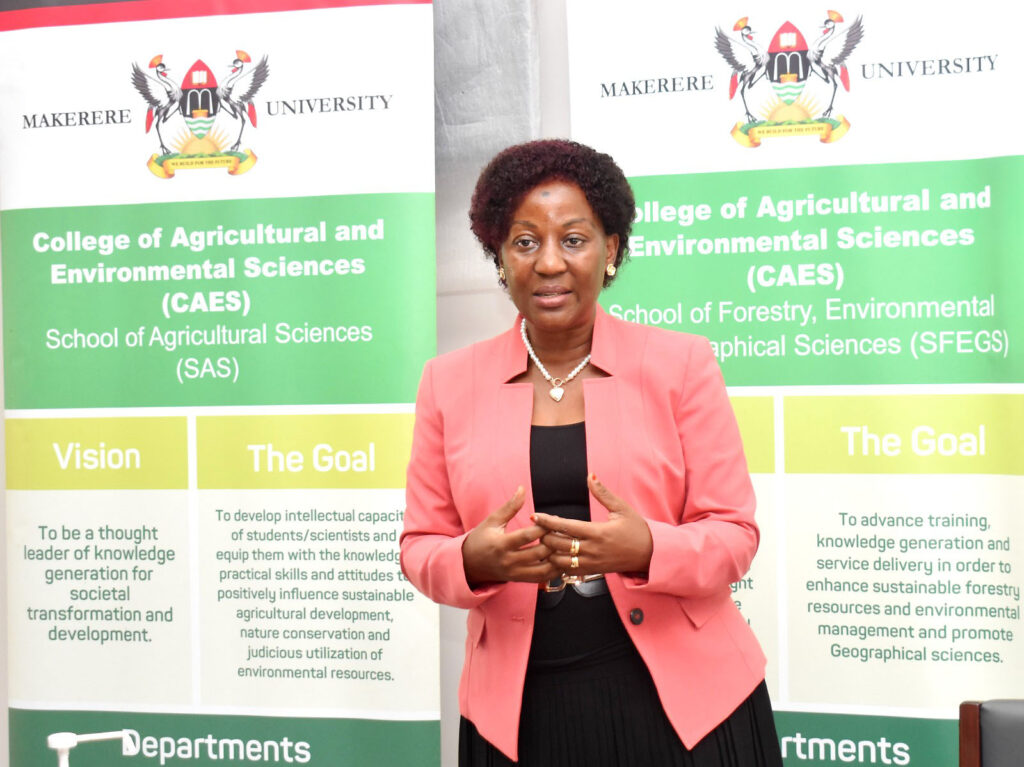
Similarly, Dr. Nabanoga extended appreciation to the outgoing Principal, Prof. Bernard Bashaasha. “I wish to pay tribute to Prof. Bernard Bashaasha who has steered CAES for the last 8 and a half years with utmost dedication and professionalism. Thank you so much for your commitment to serve CAES. It is great honour and privilege to succeed you and build upon the significant transformations you have made at CAES. I thank you for all the support offered to me as your Deputy, which enabled me to gain management experience and advance my professionalism.”
She equally appreciated her contenders, Prof. Jacob Godfrey Agea and Dr. Patrick Okori for offering themselves for the position. “It showed the zeal and motivation you equally have to serve this university and CAES fraternity in particular. “We may have had slightly different visions and strategies to move CAES in the next 4 years, which if consolidated, shall get the College to the desired level much faster. I pledge to seek and integrate your brilliant ideas, and also harness your networks within and outside the University,” she noted. Dr. Nabanoga acknowledged the support of the former and current Deans and Heads of Department.
Pledge to serve
Getting the Journey started, Dr. Nabanoga pledged to steer the College Management to deliberate on how best to cascade the University Mantra of a Research-Led University, and thus, nurture the CAES that everyone will be proud of. “Through this process, all voices shall contribute to co-creating winning strategies as we nurture the CAES we shall continue to be proud of. I reiterate my aspirations of having a united, harmonious and progressive CAES and, I continue to count on your support, even much more than you did when I served as Deputy Principal. I Pledge to serve you with utmost professionalism,” she stated. Dr. Nabanoga pledged to maintain an open-door policy during her term of office. The open-door policy will not just be about leaving my office door open, but reaching out to all staff to establish their psychological wellbeing and to seek views on how to manage the College better,” she explained.
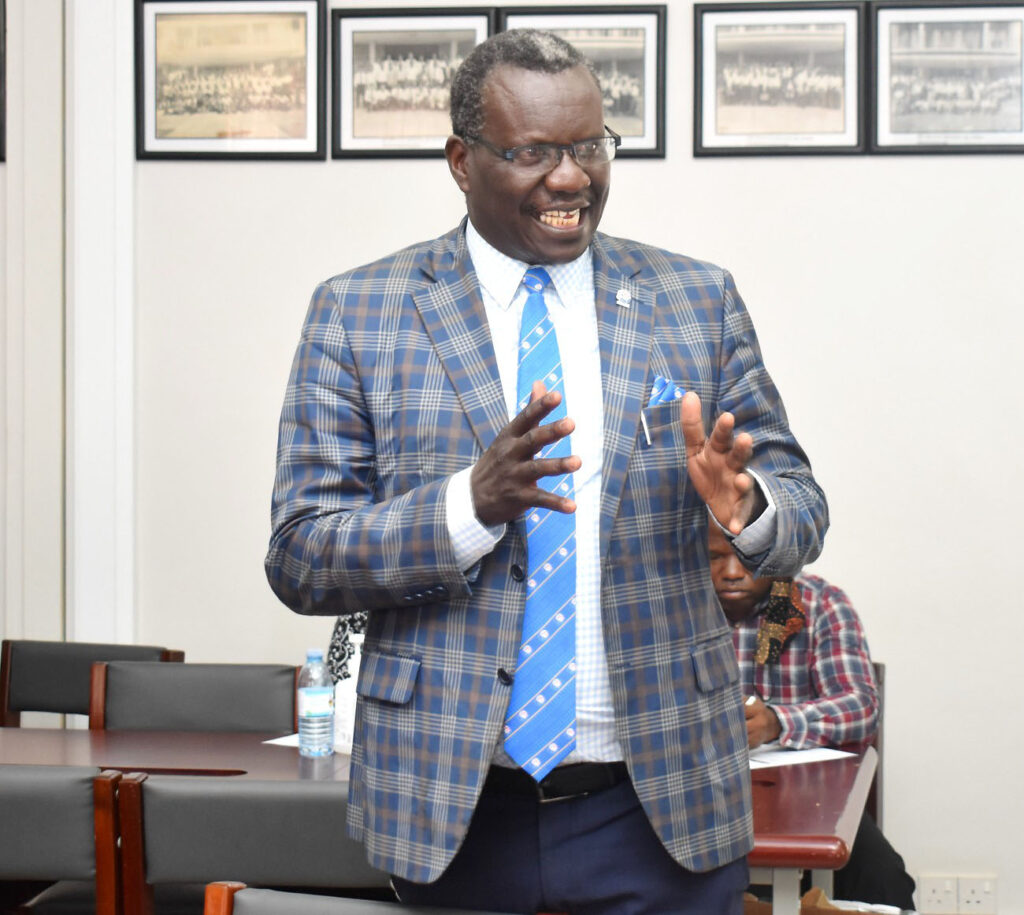
In his remarks, the Director Internal Audit, Mr. Walter Yorac Nono congratulated the new Principal upon her appointment and appreciated the outgoing Principal for the commitment and dedication that steered CAES to greater heights. “Prof. Bashaasha has come out strongly to defend CAES programmes in various Management engagements and I highly commend him for that,” he said.
The Representative of the University Secretary, Ms. Consolata Komugisha congratulated Prof. Bashaasha for the achievements registered over the years, noting that CAES had not experienced any serious financial challenges under his tenure. She congratulated Dr. Nabanoga upon her appointment as the first female Principal of CAES and pledged to support her. Commenting on the budget cuts that have led to insufficiency in most of the Units, Ms.Komugisha implored Dr. Nabanoga to work towards managing staff expectations, endeavouring to explain and opening up to staff on the situation at hand.
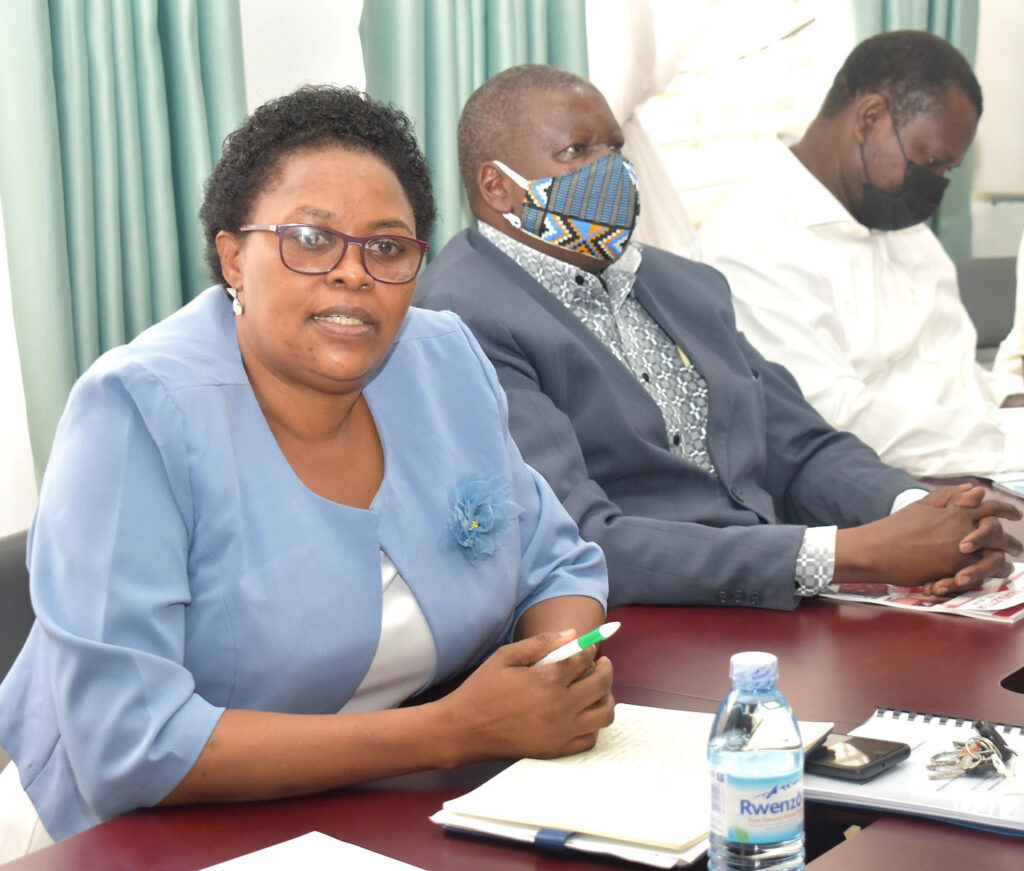
The College Human Resource Officer, Ms. Hawa Harriet congratulated the new Principal and appreciated the outgoing Principal for the cordial working relationship.
On behalf of all staff and students of CAES, the Dean, School of Food Technology, Nutrition and Bio-Engineering, Dr. Abel Atukwase welcomed the new Principal and pledged to support her to advance the mandate of CAES. He appreciated the outgoing Principal for the cordial relationship, mentorship and guidance over the years and appealed to him to continue supporting the College.
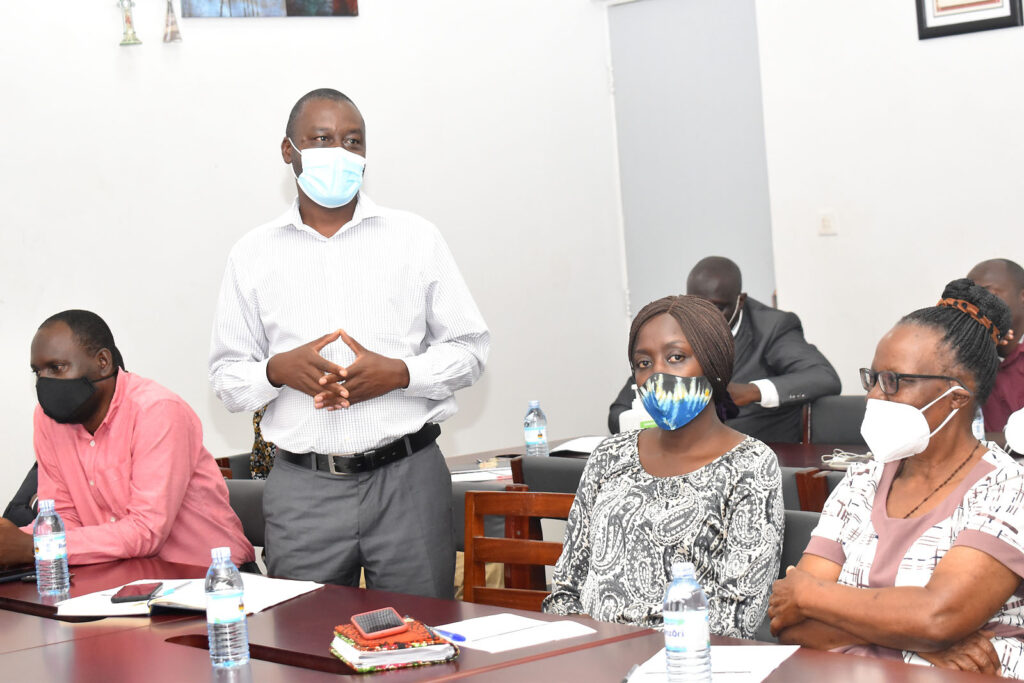
Profile of the New Principal Dr. Gorettie N. Nabanoga
Dr. Gorettie N. Nabanoga is innovative, goal-oriented, dependable, trustworthy, open-minded, easy going yet a perfectionist. She enjoys co-creating ideas, learning, unlearning and re-learning when engaging with teammates. She endeavours to always use these qualities in her personal and professional engagements.
She is a Christian, Ugandan citizen, born in 1969. She holds a PhD-Social Sciences; with research in Gender and Natural Resources Management, Wageningen Agricultural University, The Netherlands; a Master of Science in Management of Natural Resources and Sustainable Agriculture (MNRSA), Norwegian University of Life Sciences, Norway; a Bachelor of Science in Forestry, Department of Forestry, Makerere University, Uganda, and she completed her ordinary and advanced levels of education from Mt. St. Mary’s College Namagunga, Uganda.
Dr. Nabanoga completed her 4-year Bachelor’s Degree in Forestry with an Upper Second Honors Degree of Makerere University in 1993 and has since served Makerere University growing through the academic ranks from Teaching Assistant to currently Associate Professor.
She has also held several administrative and academic leadership portfolios in the University; starting as the first female Head, Department of Community Forestry and Extension, Faculty of Forestry and Nature Conservation-MAK for 8 years; the first female Dean of Faculty of Forestry and Nature Conservation-MAK for 3 years; the first female Deputy Principal, College of Agriculture and Environmental Sciences, Makerere University for 8 years; and now the first female Principal, College of Agriculture and Environmental Sciences, Makerere University. She has also served the University on several management committees as Member of the Inaugural Board of Directors, Makerere University Holdings Company for 7 years; Chair, Procurement Sub-committee, Makerere University Holdings Company for 6 years; Chair, Research and Innovations Sub-committee, of the Change Management Committee of the URARFC, Makerere University for one year; Member of the Search Committee for Principal and Deputy Principal for the College of Health Sciences; Member of the Senate Committee in the formation of the Gender Mainstreaming Directorate (GMD); Member of Makerere University Governing Council- Science Senate representative and Member of Makerere University Senate.
She has supervised several undergraduate and graduate students and mentored staff and students, many of whom have risen though the academic ranks under her mentorship; edited a Book, published two Book Chapters, several publications in peer reviewed journals and mobilized close to US$ 14 million research grants through international collaboration with several development agencies and Universities such as Agricultural University of Life Sciences, Norway (UNMB), Norwegian University of Science and Technology (NTNU), Lund and Uppsala Universities, Sweden, Wangeningen University, The Netherland, Yale University, USA, Connell University, USA, Michigan State University USA among others. And regional Universities such as Stellenbosch University South Africa; Sokoine Agricultural University, Tanzania; the University of Addis-Ababa, Ethiopia; Egerton University, Kenya as well as many Universities, Ministries, Departments and Agencies in Uganda. She has also been part of a number of consultancy teams local, regional and international.
In fulfilling the University’s outreach and community service mandate, Prof. Nabanoga is currently serving as the Vice Chairperson, Board of Directors – Buganda Cultural and Development Foundation (BUCADEV); and Member of Technical Working Committee (TEWOCO) for the Consortium for enhancing University Responsiveness to Agribusiness Development (CURAD). She previously served as an Advisory Board Member, Uganda Martyrs University – Masaka Campus; Chair, Uganda Martyrs University’s Advisory Board Academic Planning Committee – Masaka Campus; Vice-chairperson, Board of Advisors – Environmental Management for Livelihood Improvement Bwaise Facility (EMLI); and Patron – Buganda Kingdom Environment Development Association. In the private sector, she is one of the Directors, Royal Suites Hotel (a 20 US million dollar 4-Star Suite Hotel with about 130 employees) located in Bugolobi, Kampala Uganda-. Award winner of the Investor of the Year Award in 2003 and Kalanoga Resort (a 2 US million dollar Resort with about 50 employees) located 2km off Kajjansi-Munyonyo Highway, Busabala Road Junction, Kampala, Uganda.
Prof. Nabanoga is a Uganda National Academy of Science (UNAS) Fellow, a member of the Society for Conservation Biology (SCB); Uganda Society for Science and Technology (USST); Norwegian Friends of Uganda (NUFA); Uganda Forestry Association (UFA): and Buganda Kingdom Development Programme-Agro Sector.
You may like
-


Simplicity, Service & Scholarship: Hallmarks of Professor Livingstone Luboobi’s Legacy
-


Strengthening Grants Management Through Institutional Collaboration and Capacity Building
-
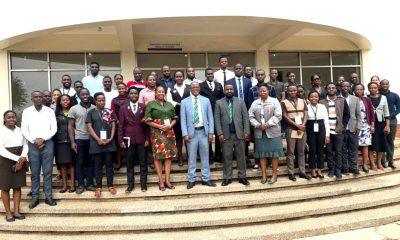

Mak Moves to Revitalize Food Technology & Business Incubation Centre to Drive Innovation & Entrepreneurship
-
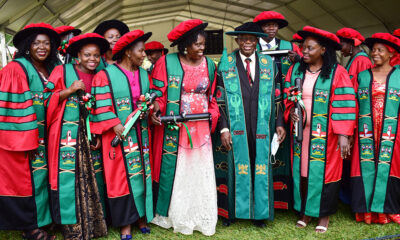

Advert: Postgraduate Admissions 2025/26
-
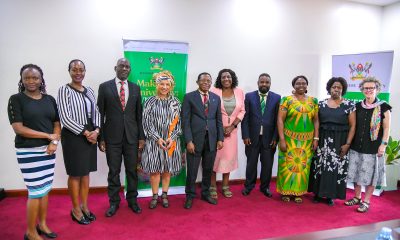

Mak, HERS-EA Discuss Nurturing More Women Leaders
-
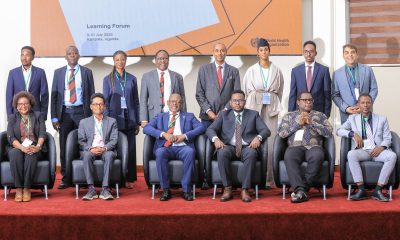

Opening KNOSA Learning Forum at Mak
Agriculture & Environment
Mak Moves to Revitalize Food Technology & Business Incubation Centre to Drive Innovation & Entrepreneurship
Published
5 days agoon
July 14, 2025By
Mak Editor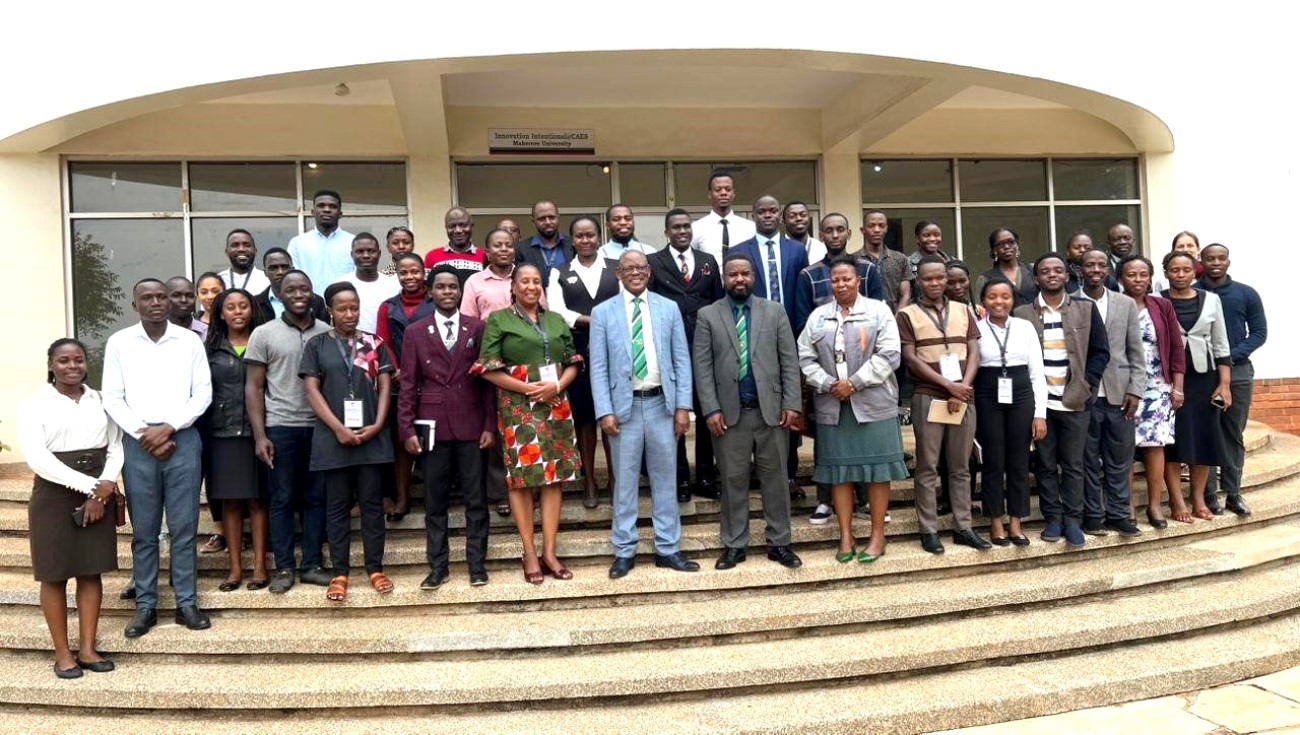
By Ssembogga Derrick
Makerere University marked a significant milestone on Thursday, 10th July 2025, with the launch of the revitalization programme for the Food Technology and Business Incubation Centre (FTBIC). This initiative is poised to position the FTBIC as a national hub for food innovation, student enterprise development, and agro-industrial transformation.
Hosted under the School of Food Technology, Nutrition and Bioengineering (SFTNB) at the College of the Agricultural and Environmental Sciences (CAES), the revitalization of the FTBIC is intended to bridge the gap between academia and industry. “We aim to achieve this by supporting food-based start-ups, enhancing graduate entrepreneurship, and promoting the commercialization of research,” Dr Julia Kigozi, Dean, SFTNB explained. The project receives critical funding from the Makerere University Research and Innovations Fund (MakRIF), which consistently supports innovation and research-based development at the university.
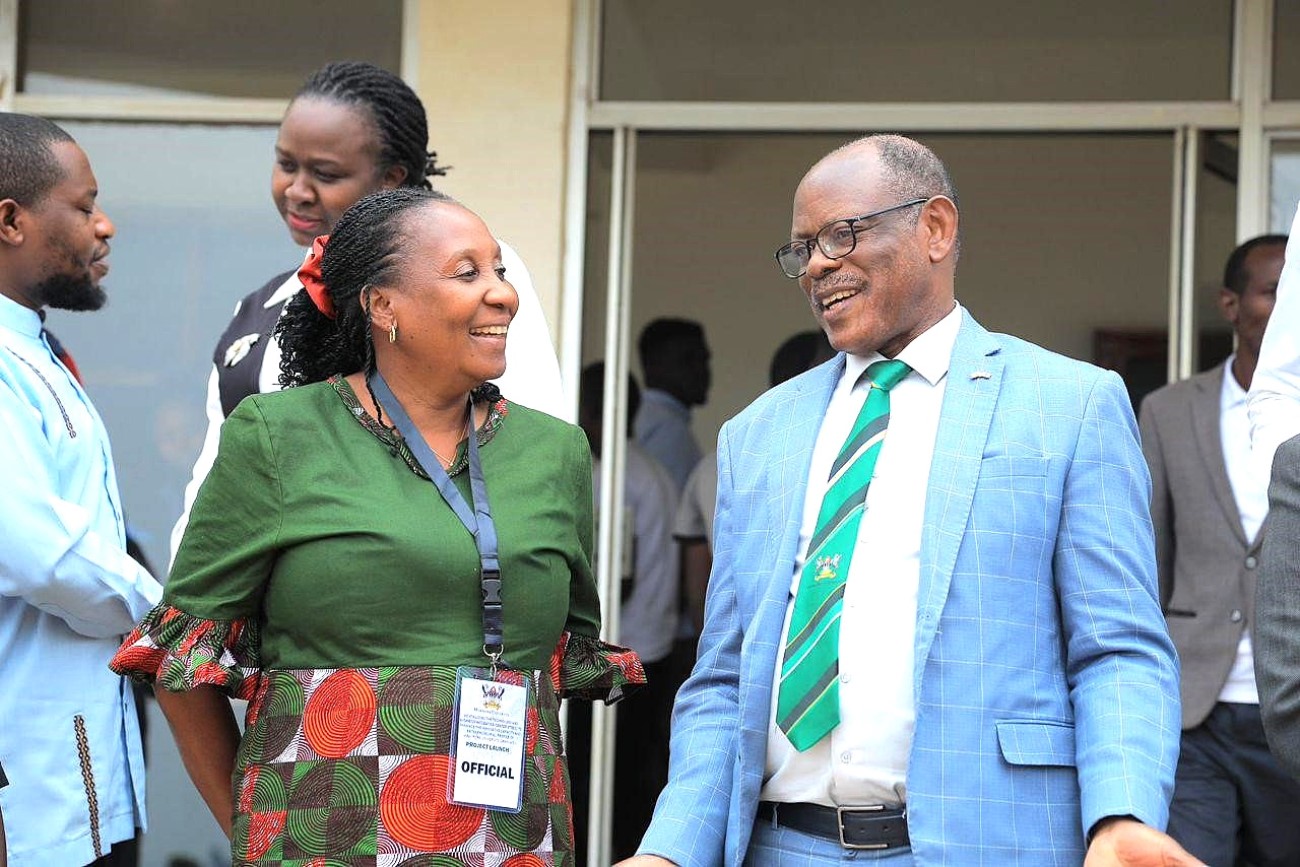
Unveiling a New Strategic Vision
The event, held under the theme “Revitalizing FTBIC to Unlock Innovation and Entrepreneurship Potential among Makerere University Graduates”, marked the official launch of the Centre’s revitalization programme to key stakeholders. It featured the presentation of FTBIC’s new strategic vision and direction, highlighting the commitment of the institution and its partners to fostering graduate entrepreneurship and innovation in food systems. The event also aimed to raise awareness of the Centre’s crucial role in supporting industry, research, and national development.
Participation of stakeholders
The launch attracted a vibrant and diverse audience of over 50 participants. Among the attendees were student representatives; partners from other incubation centers both within and outside Makerere University, including MIIC, UNIPOD, and DGI; as well as representatives from national innovation stakeholders such as Uganda Industrial Research Institute (UIRI) and StartHub Africa.
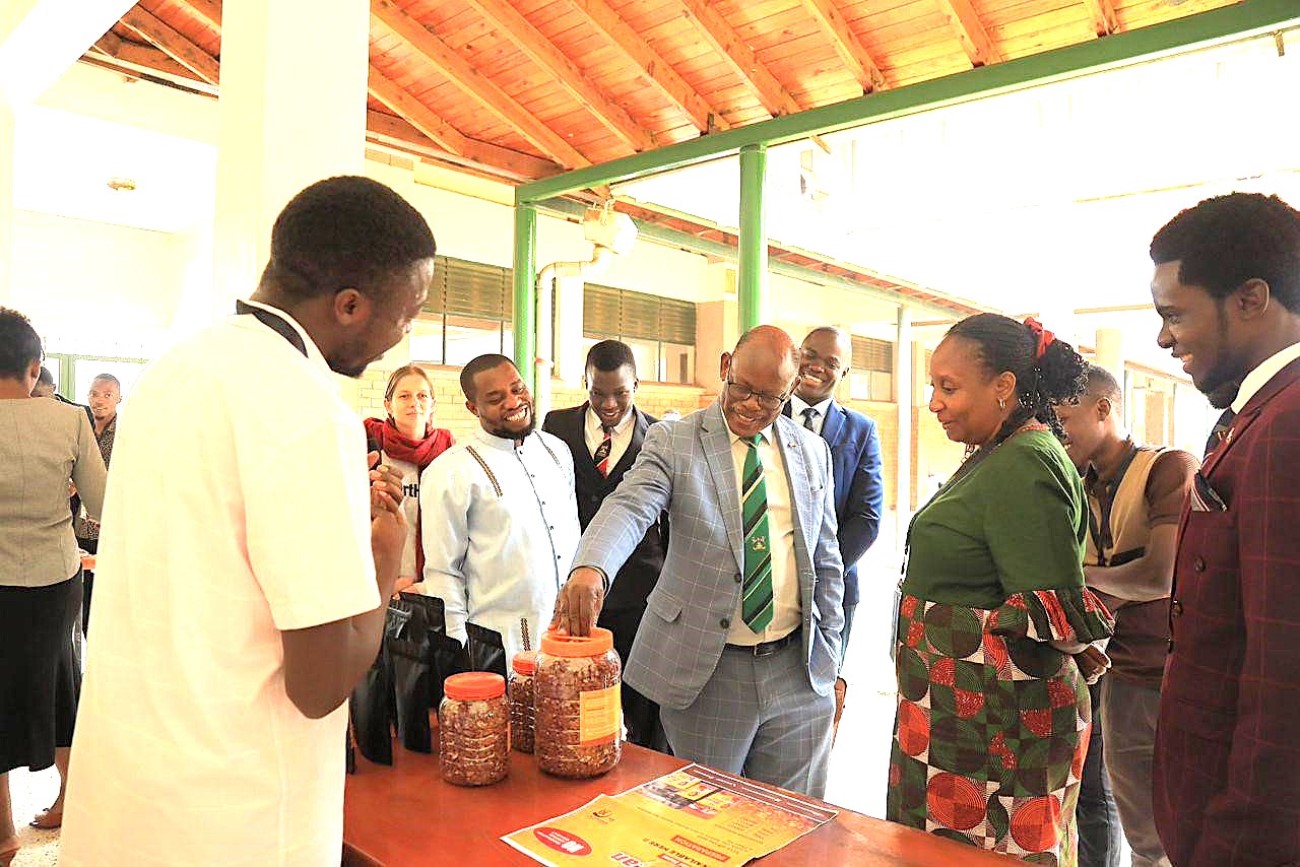
Most notably, the event was honored by the presence of the Vice Chancellor of Makerere University Prof. Barnabas Nawangwe. The Vice Chancellor commended the revitalization efforts, acknowledging the Centre’s immense potential to incubate hundreds of food-based start-ups and create employment opportunities for thousands of graduates. “The Centre is now well-positioned to become a flagship platform for innovation, employment creation, and agro-industrial development in Uganda and beyond. Makerere University remains committed to supporting such initiatives that align with national priorities and global development goals.”
The event featured the unveiling of the operational framework for the revitalized Centre, highlighting its commitment to innovation, entrepreneurship, and practical graduate training. Stakeholders in attendance expressed enthusiasm and pledged support for future collaboration, research, and product development initiatives aligned with national development priorities. The event also provided a platform to deepen partnerships with private sector actors and development organizations, reinforcing confidence in the Centre’s potential to serve as a national model for university-led incubation.
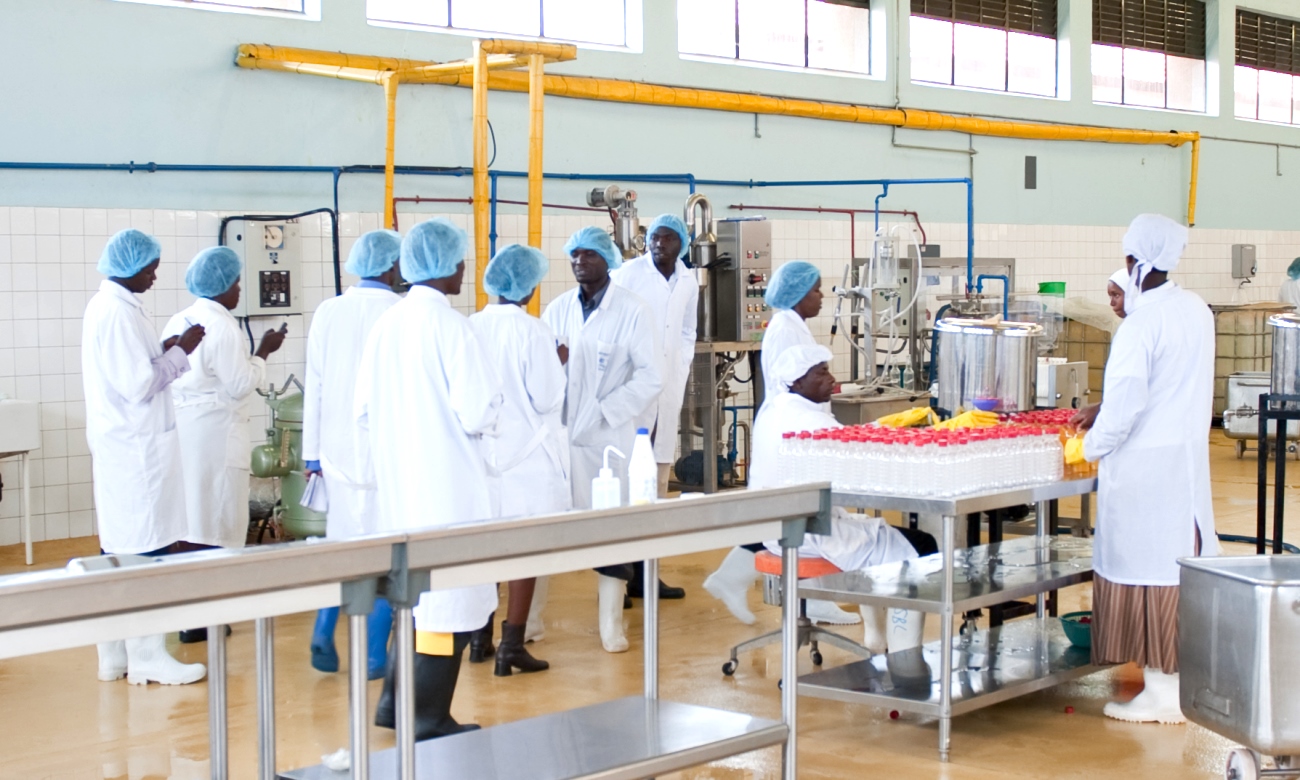
Agriculture & Environment
SophiA Project Upgrades Medical Infrastructure at Buvuma Health Centre IV, Trains Technicians for Maintenance Works
Published
1 week agoon
July 9, 2025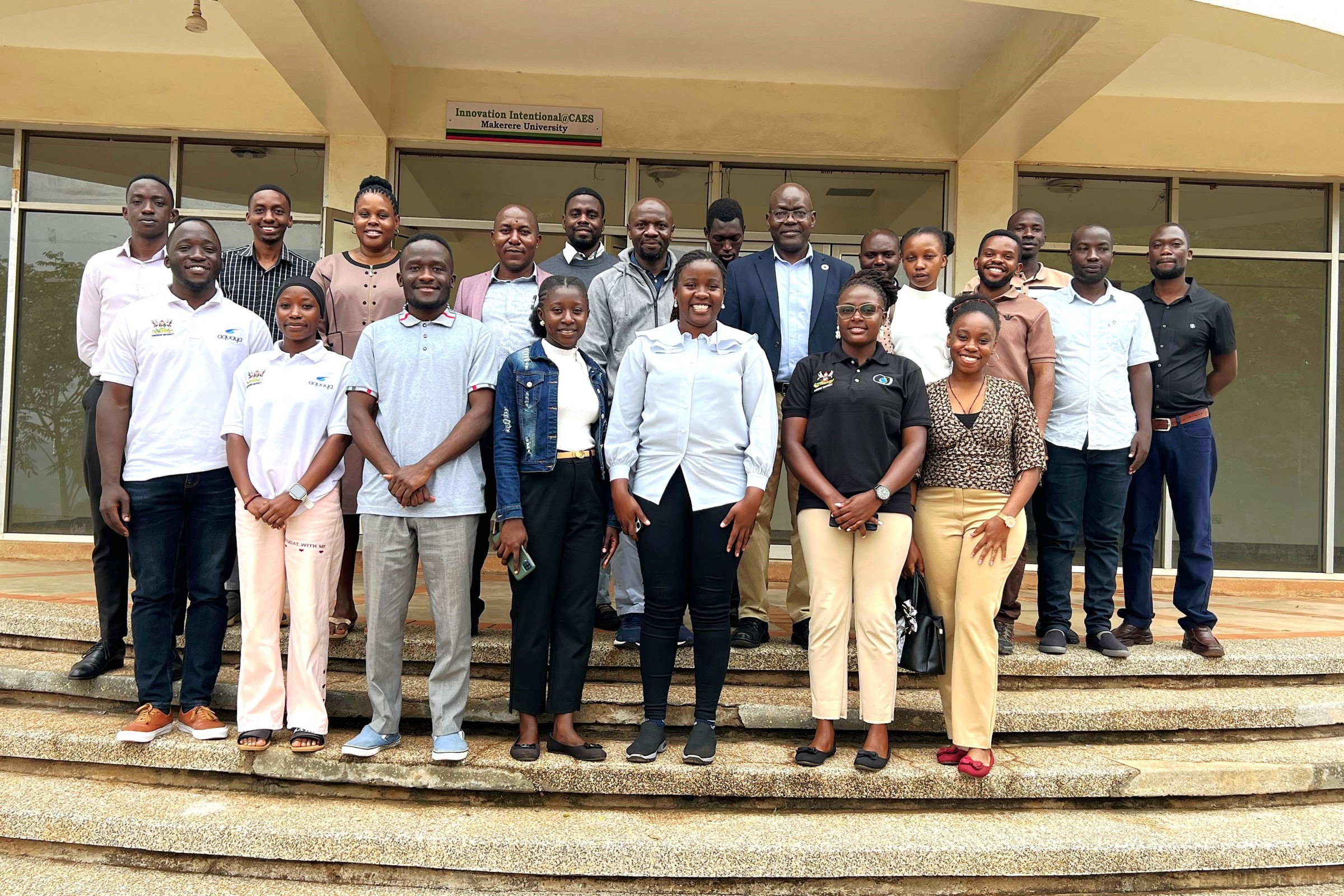
Overview of the Sustainable Off-Grid Solutions for Pharmacies and Hospitals in Africa (SophiA) Project
Despite ongoing urbanization across Africa, the majority of the population still resides in rural and remote areas, where infrastructure development remains limited. These regions face significant challenges such as lack of access to healthcare, education, clean water, and reliable electricity, contributing to higher rates of illness and poverty compared to urban centres. According to reports, Sub-Saharan Africa has approximately 120,000 public health facilities (22,000 hospitals and 98,000 health posts), of which around 26% lack any electricity access, and only 28% have reliable power supply.
Access to good healthcare is critical for sustainable development. However, many rural medical centres operate under harsh conditions – using polluted water, lacking cooling for medicines, and facing poor sanitation – largely due to unreliable electricity and water supply. Although half of the population in Sub-Saharan Africa lacks electricity, the region has abundant renewable energy potential that can be effectively harnessed through off-grid solar photovoltaic (PV) systems.
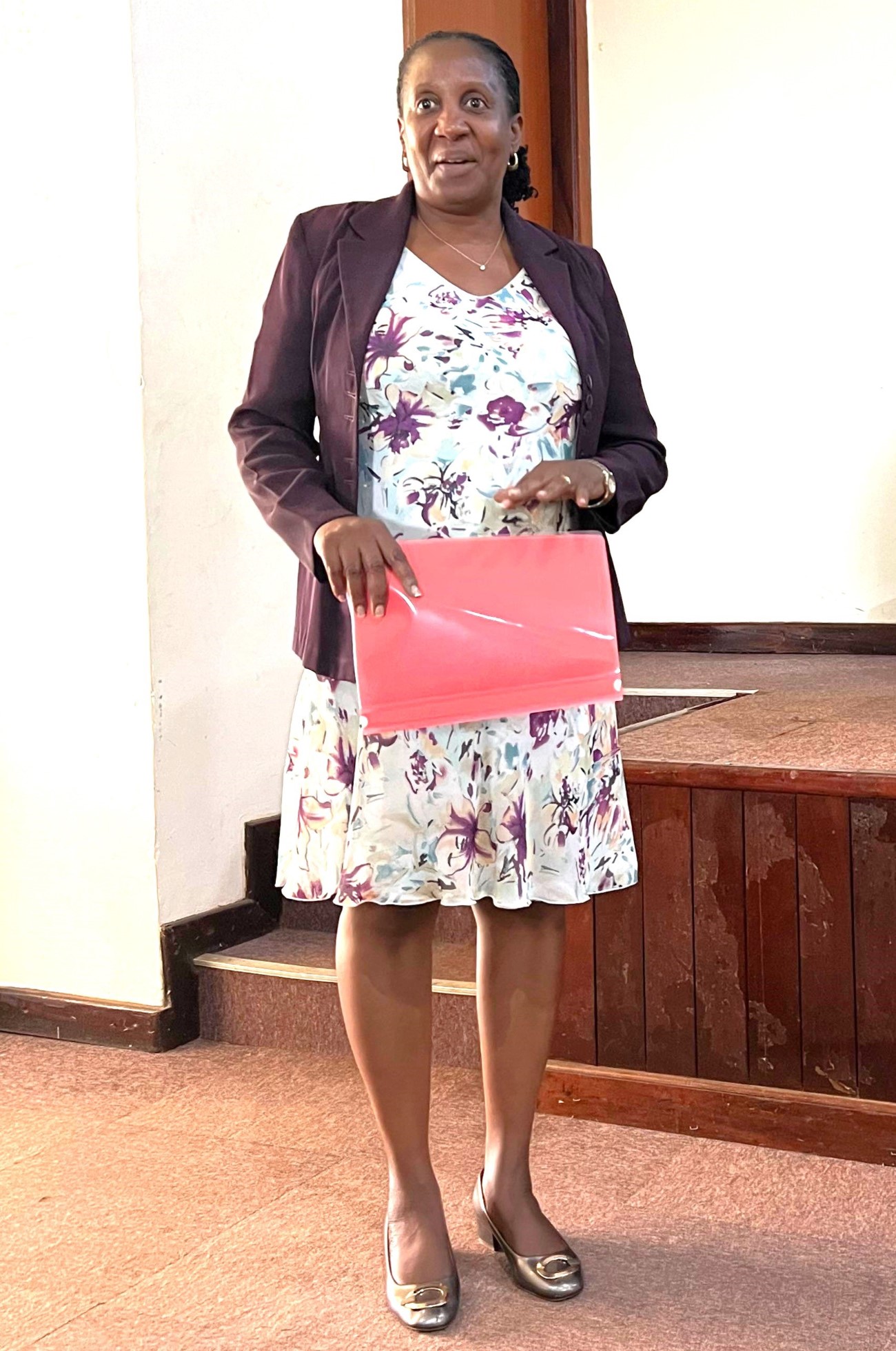
To address the above-mentioned challenges facing the African Continent, Makerere University in partnership with 13 organizations across Europe and Africa developed a project titled, “Sustainable Off-grid solutions for Pharmacies and Hospitals in Africa (SophiA)”. The five-year project that began on 1st October 2021 is funded by the European Union (Project: 101036836 – SophiA – H2020-LC-GD-2-3-2020). At Makerere University, the project is coordinated by Dr. Nicholas Kiggundu, Associate Professor in the Department of Agricultural and Biosystems Engineering, College of Agricultural and Environmental Sciences (CAES).
Piloted in Burkina Faso, Cameroon, Malawi, and Uganda, SophiA aims to provide sustainable off-grid energy solutions to rural and remote health facilities, fostering economic growth and ensuring equitable access to energy and healthcare. Using various technologies, such as photovoltaics, solar thermal, electrical and thermal storage, water treatment and natural refrigerants with low global warming potential, SophiA has developed and manufactured locally innovative, modular, affordable and efficient solar powered systems for providing:
- Safe and clean drinking water, free of bacteria and viruses, and deionised water for medical purposes;
- Hot water and steam production for thermal requirements of the hospitals;
- Cooling of medicines and food at +5°C;
- Low temperature storage of blood plasma and vaccines at -30°C;
- Ultra-low temperature storage of sensitive medication (e.g. some Covid-19 or Ebola vaccines) at -70°C.
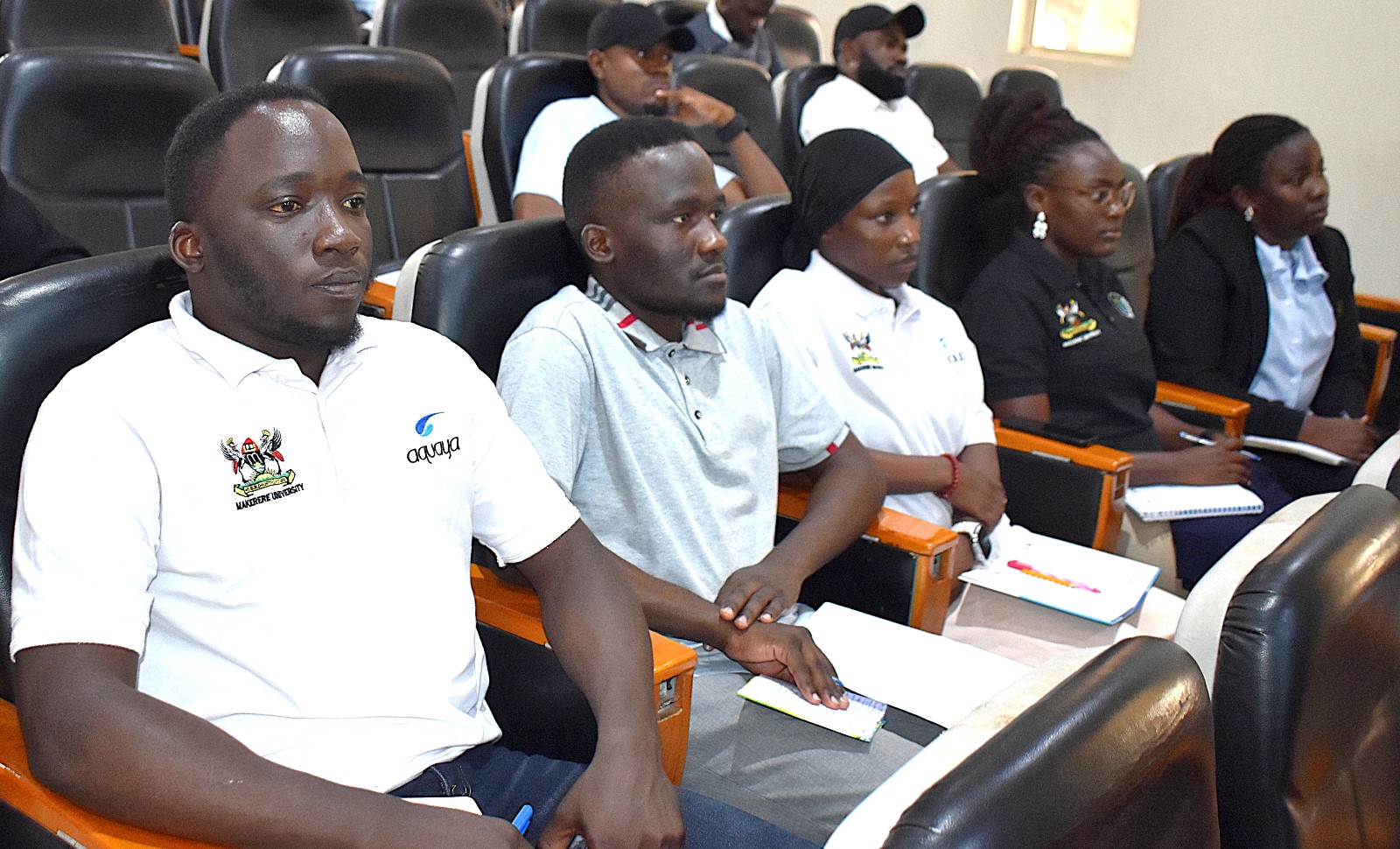
In addition, PV MedPort, a simple and 100% solar-powered solution has been developed and tested as a mobile health care station in small remote areas in 4 different geographical conditions in Africa. The SophiA system has been manufactured in Africa and will provide, for the first-time, innovative solutions based on climate-friendly natural refrigerants to cover cooling demand for three different temperature ranges (-70°C, -30°C and +5°C). The system has been tested and demonstrated at four rural hospitals in remote regions throughout the African continent covering the major geographical regions and different climatic conditions in Burkina Faso, Cameroon, Malawi and Uganda.
SophiA Project initiatives in Uganda
In Uganda, all Health Centre IV hospitals with surgical theatres have been connected to the national grid except Buvuma Health Centre IV, which serves over 120,000 people scattered across 52 islands. Recognizing this gap, the Ministry of Health selected Buvuma Health Centre IV for the SophiA project to demonstrate sustainable off-grid solutions.
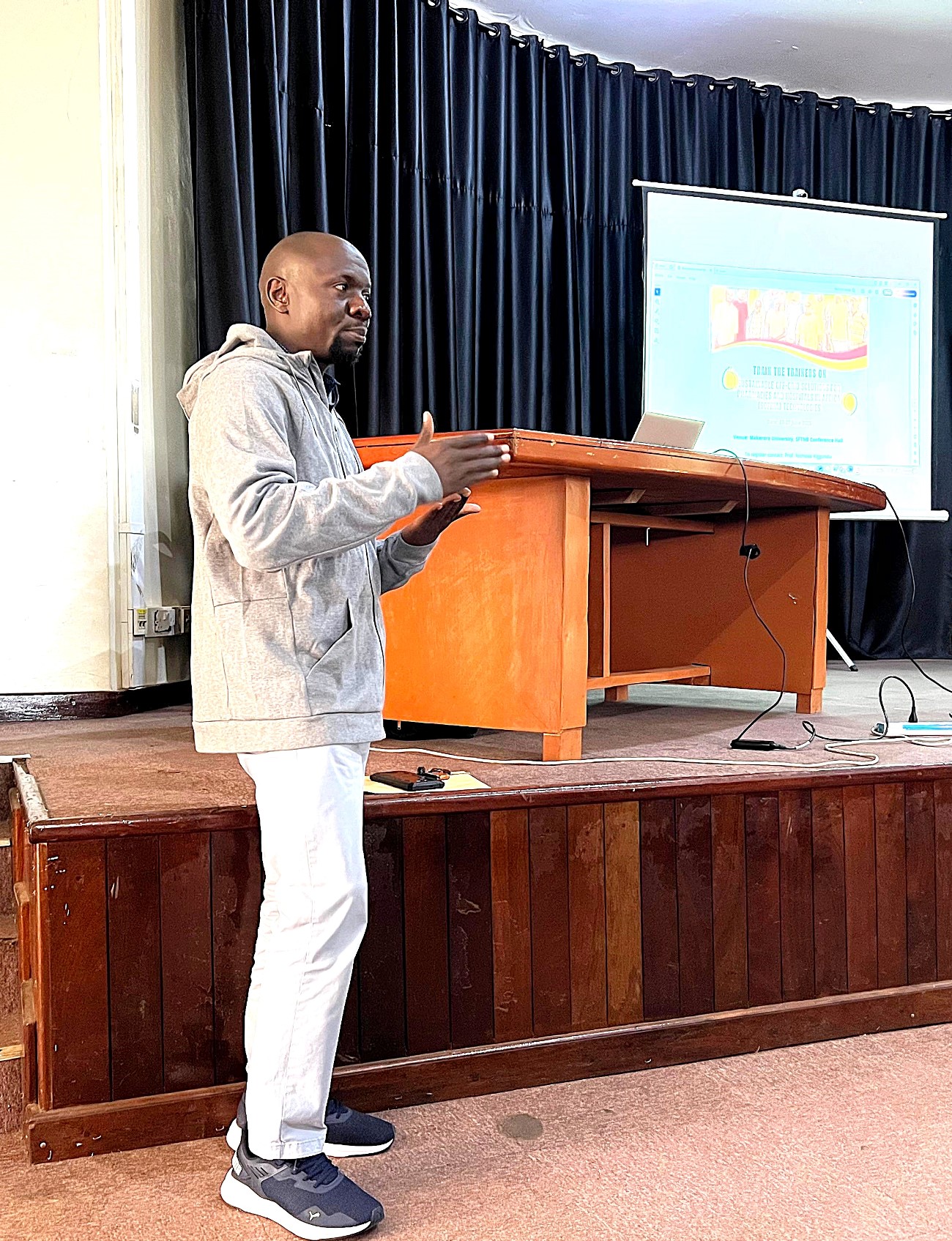
The SophiA System at Buvuma Health Centre IV provides the following services:
- Off-grid electricity supply
- Safe, clean drinking water for patients, staff, and the community
- Hot water and steam systems crucial for maternal care
- Solar-powered cooking and meal preparation
- Cooling systems for surgery and intensive care units
- Refrigeration for medicines at +5°C, blood plasma storage at -30°C, and ultra-low temperature storage (-70°C) for sensitive vaccines such as those for COVID-19 and Ebola
Training of Trainers Workshop
As the SophiA project approaches completion in September 2025, it is vital to establish a skilled pool of technicians capable of handling maintenance and minor repairs of the system components, including solar panels, water treatment units, generators, batteries, and cooking kits.
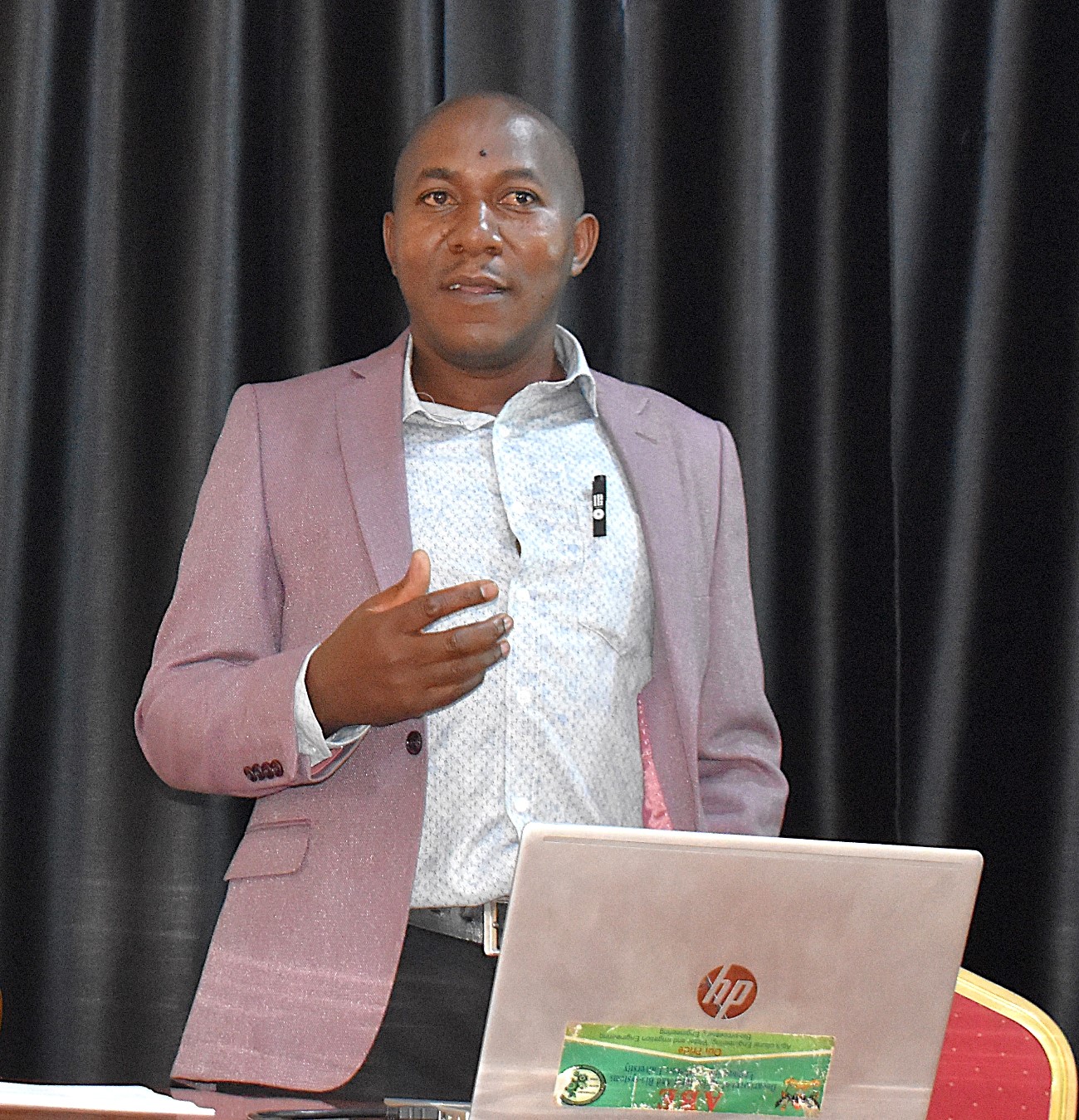
From June 23 to 27, 2025, Makerere University hosted a comprehensive Training of Trainers workshop. The training programme encompassed a diverse range of topics delivered by subject matter experts from institutions, including Makerere University (Department of Agricultural and Biosystems Engineering – CAES, and the College of Engineering, Design, Art and Technology – CEDAT), Hochschule University of Applied Sciences, and Busitema University. Participants were carefully selected from diverse professional backgrounds, including recent engineering graduates from CAES and CEDAT, Makerere University, University technical staff, personnel from Kyambogo University, officials from Buvuma District Works and Health Departments, and electricians from Kampala City. The training sessions were conducted at Makerere University and Buvuma Health Centre IV Hospital.
Training Modules Included:
- Sustainable energy systems and their practical applications
- Energy generation and storage technologies
- Solar water heating: design, operation, maintenance, and performance optimization of solar water heaters, crop dryers, and concentrating solar heaters
- Solar PV technologies in Uganda: cell technology, system design, operations, maintenance, and hands-on practicals for standalone and grid-connected systems
- Public health implications of water quality
- Water treatment and quality management, including protocols, parameters, and case study on the MCDI treatment system
- Water quality testing methodologies
- Introduction to sustainable refrigeration and cooling technologies
- Environmental impact and safety considerations for refrigerants
- Refrigeration cycles and component overview
- Life cycle assessment of SophiA technologies
- Thermal energy storage within the SophiA system
- Steam as a productive energy source
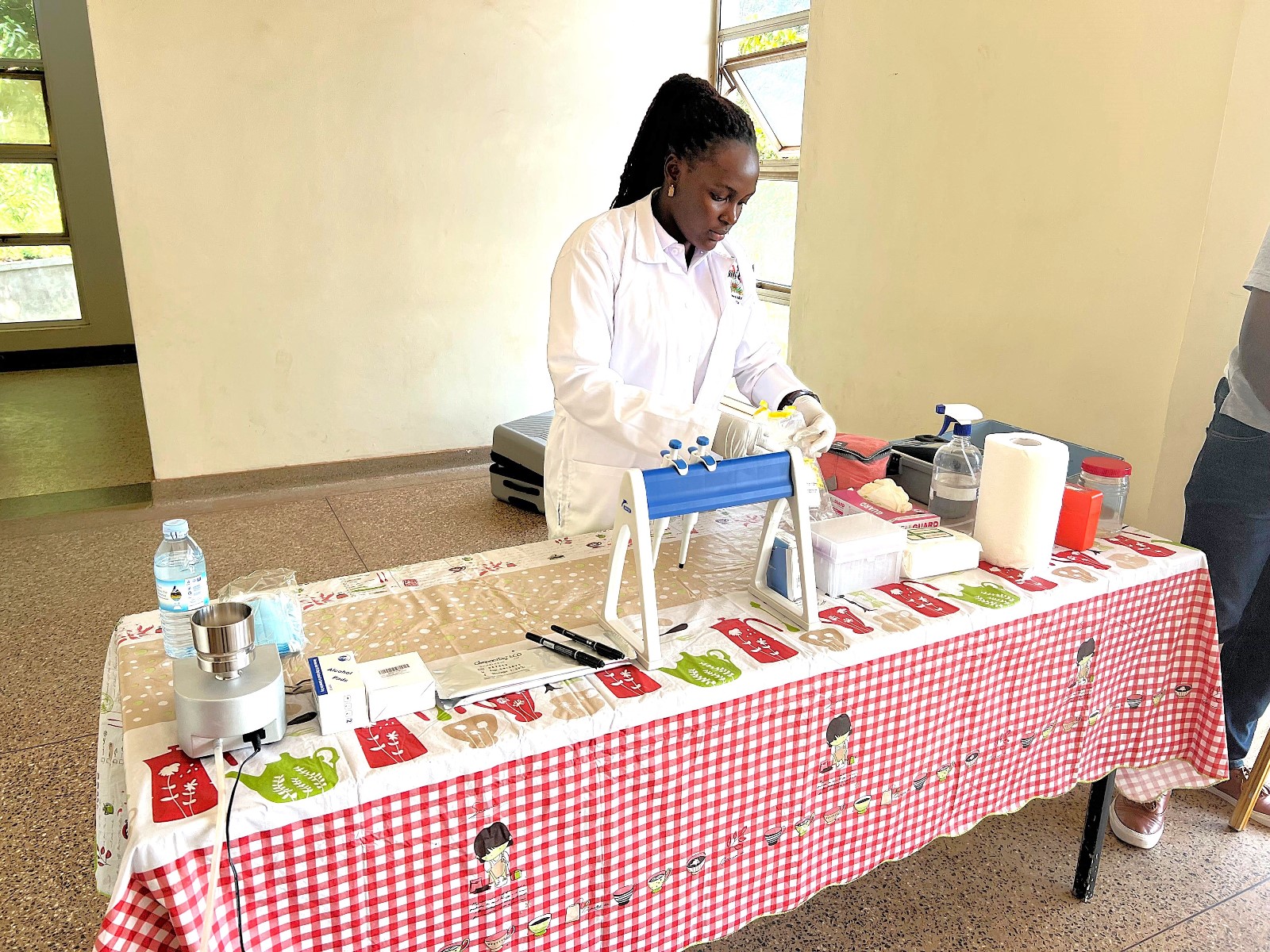
The Training Sessions
Day One: Introduction to foundational concepts in solar energy technologies
The first day of the SophiA Train the Trainers Workshop focused on building foundational knowledge in sustainable and solar energy systems. Led by Dr. Peter Tumutegyereize and Dr. Francis Mujjuni, participants explored a range of technologies and applications critical to clean energy deployment.
Key topics included:
Sustainable Energy Systems: Introduction to renewable energy systems including bioenergy, hydro, wind, geothermal, hydrogen fuel cells, and battery storage.
Solar Radiation & Geometry: Understanding solar constants, irradiance, and the impact of atmospheric conditions on solar performance.
Solar Thermal Technologies: Detailed look at solar water heating systems (FPCs and ETCs), maintenance, sizing, and solar dryers for agricultural and industrial use.
Photovoltaic (PV) Systems: Working principles, types of PV cells, performance factors, and diagnostics. Practical testing techniques and metrics like Voc, Isc, MPP, and PR were discussed.
Simulation & Application: Olivia Nakiwanuka demonstrated a PVsyst-based simulation of a 2.55 kWp standalone system for a conference hall, showing a high solar fraction (97.88%) and low LCOE (USD 0.03/kWh).
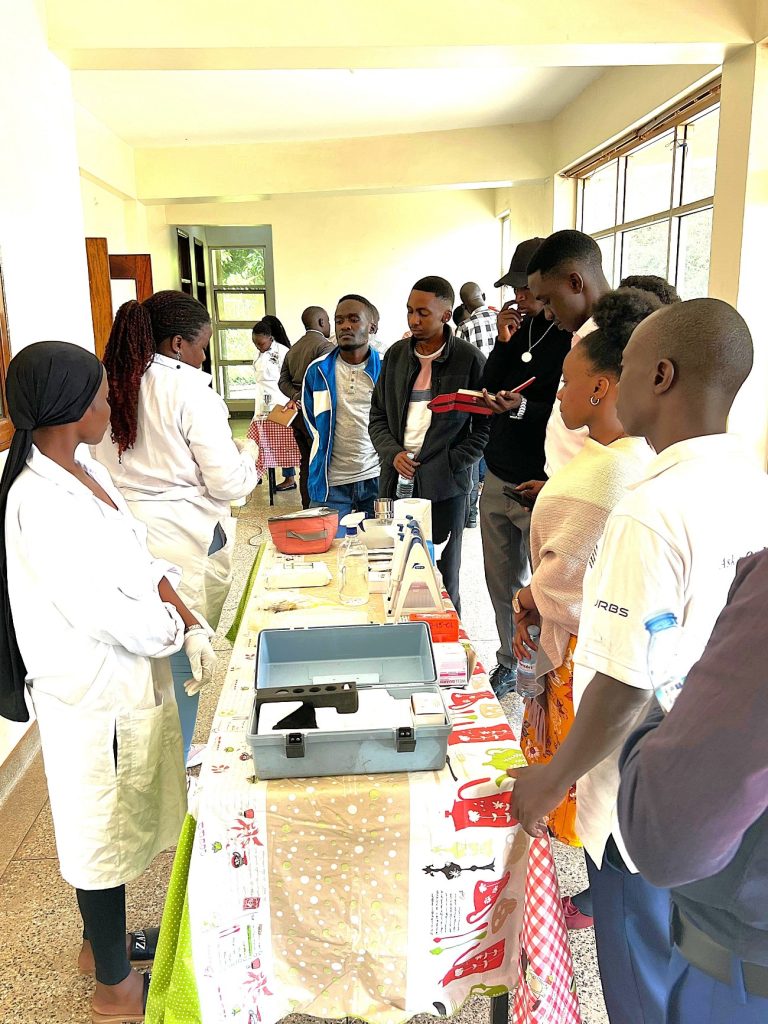
The sessions emphasized practical skills, performance analysis, and real-world application, equipping participants to train others and support solar adoption, especially in rural and off-grid settings.
Day Two: Water Treatment Technologies
The second day focused on water treatment technologies relevant to low-resource healthcare settings. Facilitated by Sneha De and Mr. Duc Dinh Ngoc from Hochschule Karlsruhe University, sessions covered technical, environmental, and operational challenges, with contributions from Dr. Joshua Wanyama on water quality management and Dr. Prossie Nakawuka on practical water testing.
Key challenges addressed included unreliable water supply and contamination in healthcare facilities, emphasizing the need for decentralized water treatment, especially in rural areas.
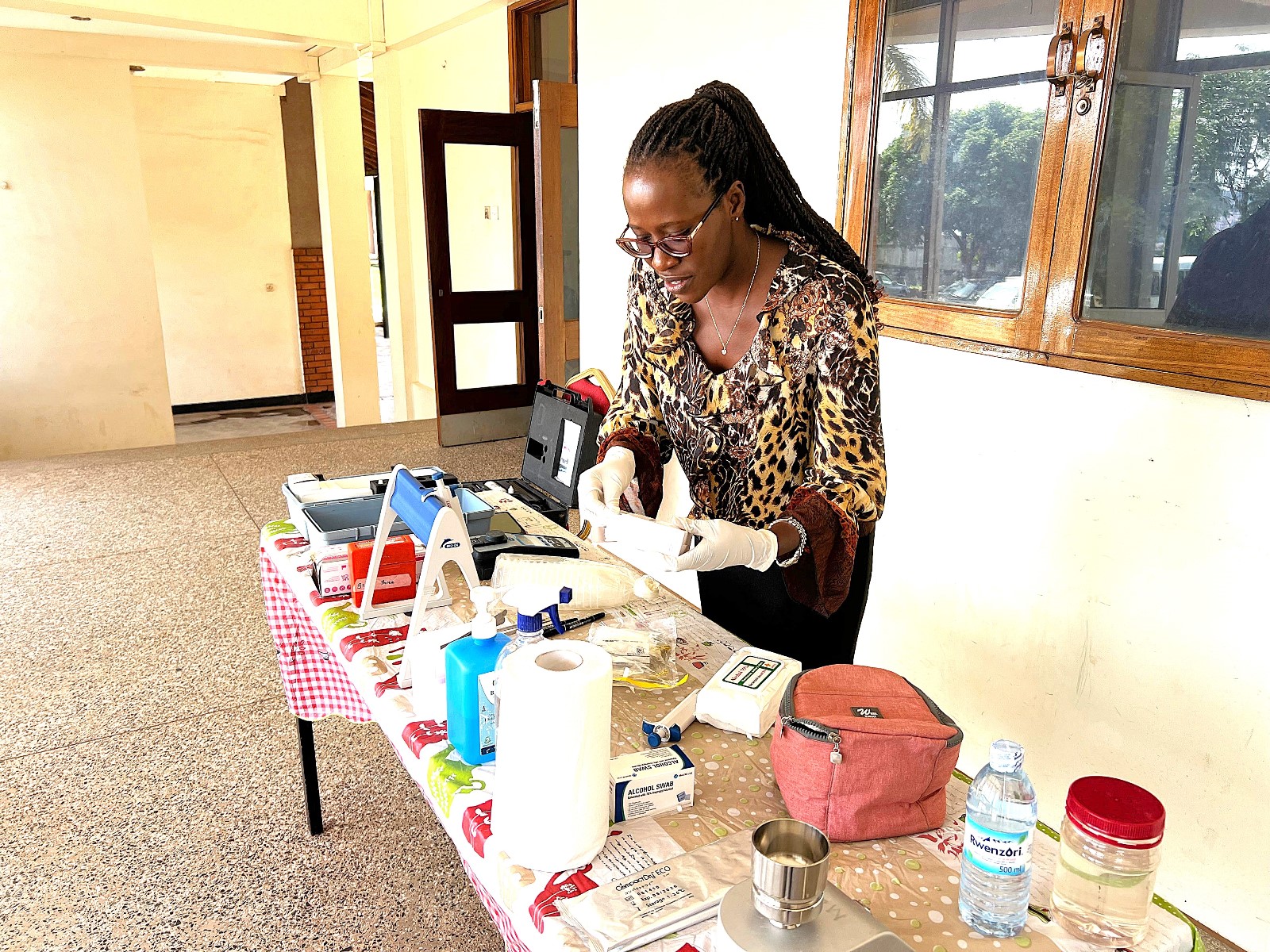
Sneha De reviewed biological and physical/chemical water treatment methods, highlighting technologies such as activated sludge, filtration, membrane bioreactors, and advanced disinfection techniques. The SophiA modular water treatment system, integrating ultrafiltration and membrane capacitive deionisation (MCDI), was introduced as a scalable solution for producing safe drinking and deionised water for medical use.
Mr. Duc Dinh Ngoc trained participants on the MCDI technology, an energy-efficient method for salt and fluoride removal suitable for low-salinity water.
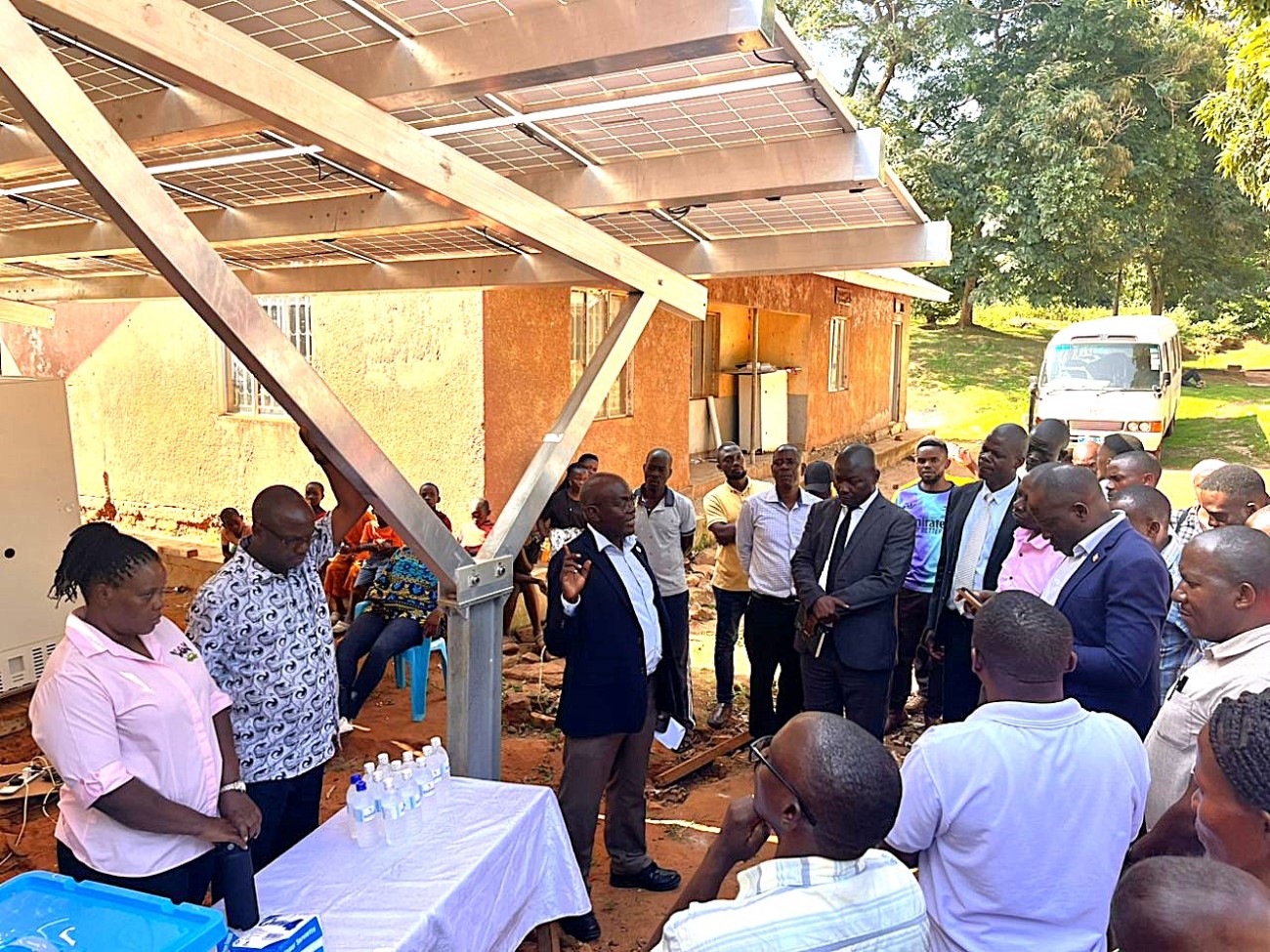
Dr. Joshua Wanyama discussed the water quality management protocols, outlining key physical, chemical, and biological water parameters and monitoring strategies, including modern IoT-based tools, to ensure water safety and public health.
The day concluded with a hands-on lab session by Dr. Prossie Nakawuka, where participants practiced water quality testing using turbidimeters, incubators, and filtration techniques.
Overall, Day Two combined theoretical insights, technology demonstrations, and practical skills, preparing participants to implement sustainable water treatment and quality management systems in healthcare environments.
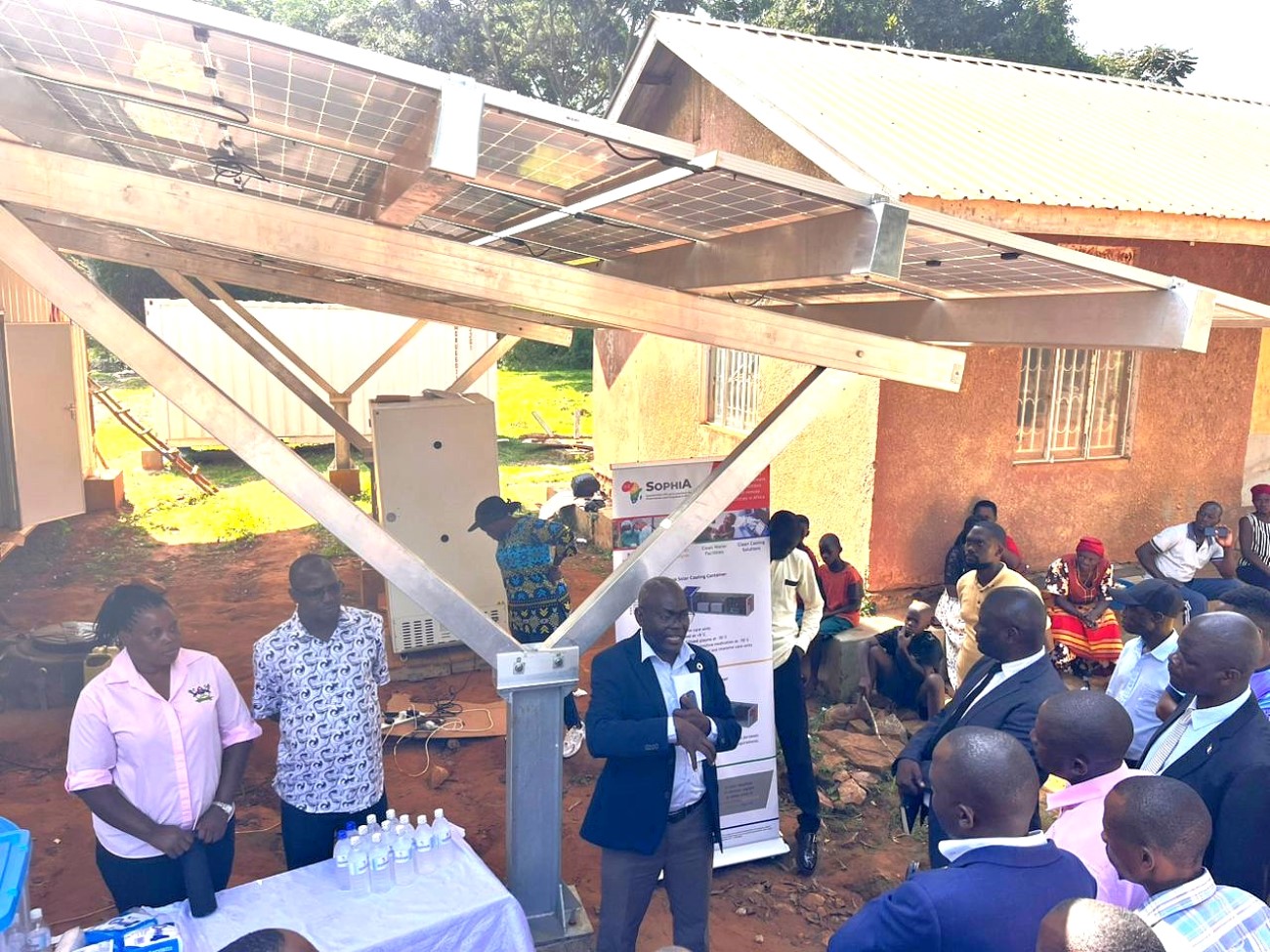
Day Three: Refrigeration and Cold Storage
The third day of the SophiA workshop focused on sustainable refrigeration and cold storage technologies tailored for healthcare in Sub-Saharan Africa. Experts discussed energy-efficient, climate-friendly cooling solutions vital for vaccine storage, medicines, and diagnostics, especially in off-grid and rural settings.
Key highlights included the introduction of solar-powered and biomass-based refrigeration systems, thermal energy storage methods, and the use of natural refrigerants like propane, ammonia, and CO₂ as environmentally safer alternatives. Presentations emphasized the critical role of refrigeration in healthcare and the urgent need to replace harmful chemicals with sustainable technologies.
Sessions covered real-world applications such as the SophiA cooling containers in Burkina Faso, safety protocols for flammable refrigerants, and the environmental and economic benefits of solar refrigeration systems assessed through life cycle analysis.
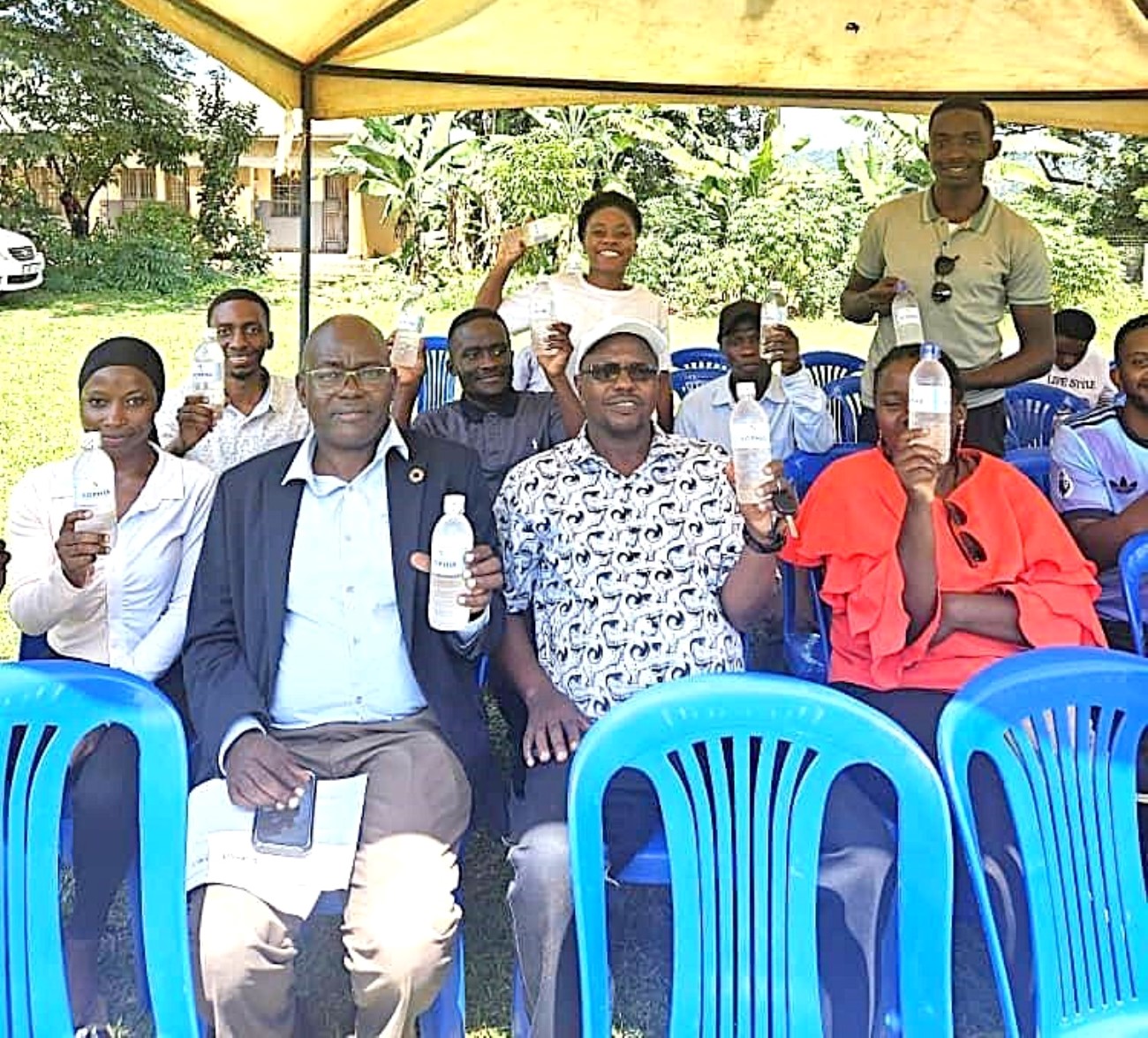
The day ended with an interactive quiz and discussion, reinforcing learning and encouraging participants to apply sustainable cooling practices in their communities.
Day Four: World Refrigeration Day & Field Visit to Buvuma Island
The fourth day of the SophiA Train the Trainers workshop was dedicated to the celebration of the World Refrigeration Day and a field excursion to Buvuma Island, providing participants with a unique opportunity to witness the SophiA system in action. The day was coordinated by Dr. Sarah Bimbona and Dr. Nicholas Kiggundu, who led the delegation to Buvuma Health Centre IV, the pilot site for the SophiA installation in Uganda.
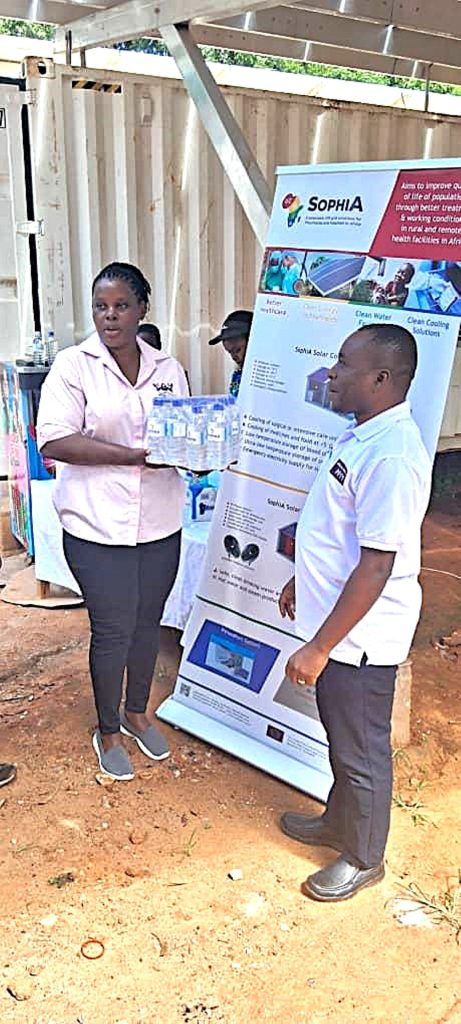
The visit served as both a practical extension of the previous day’s technical sessions and a community engagement event. Participants were able to observe the installed SophiA system, which integrates solar-powered refrigeration, water treatment and steam generation technologies designed for off-grid healthcare settings. During the visit, Dr. Kiggundu provided a detailed briefing to local stakeholders, including representatives from the Buvuma District Local Government, delegates from the Buganda Kingdom, and members of the local community. He explained how the SophiA system will enhance healthcare delivery on the island through reliable cold storage for vaccines and medicines, access to clean drinking water, and steam generated for cooking and use in the maternity wards.
As part of the long-term sustainability plan for the SophiA system, the launch of SophiA Water was announced, an entrepreneurial initiative designed to generate revenue locally for the operation and maintenance of the system.
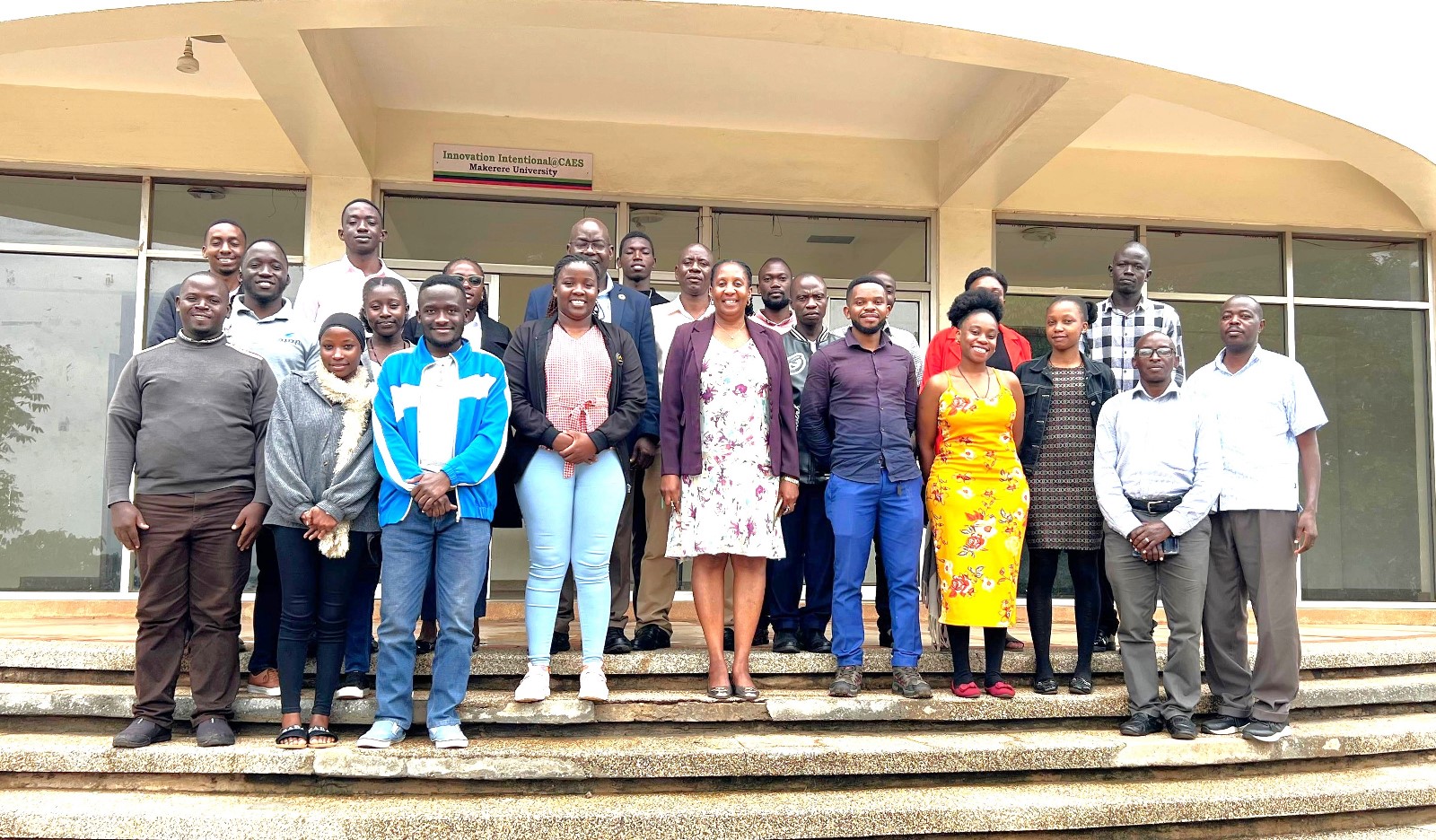
The field trip ended with a certificate awarding ceremony in appreciation of the participants’ dedication and active engagement throughout the training programme.
Agriculture & Environment
APRC Trains Graduate Students & Stakeholders in the Use of the African Agriculture Adaptation Atlas
Published
2 weeks agoon
July 3, 2025
The Agricultural Policy Research Centre (APRC), housed within the College of Agricultural and Environmental Sciences (CAES) at Makerere University, continues to play a pivotal role in shaping Uganda’s agricultural future through evidence-based policymaking. With a mission to ensure that agricultural policies are grounded in empirical research and data, APRC is actively investing in capacity-building initiatives that empower researchers, policymakers, and development actors.
In a significant stride toward building climate resilience in African agriculture, APRC recently organized a two-day intensive training workshop focused on the African Agriculture Adaptation Atlas (AAAA) – a state-of-the-art, web-based decision-support platform that facilitates the integration of climate data into agricultural planning and policy.

The workshop, held on Wednesday 25th and Thursday 26th June 2025 at the School of Agricultural Sciences, Makerere University, targeted two key groups: graduate students on the first day, and university faculty, government officials, and development practitioners on the second. This structure ensured tailored learning experiences for both emerging and seasoned professionals, helping to bridge the gap between academic research and real-world policy implementation.
The African Agriculture Adaptation Atlas (AAAA) is designed to provide dynamic, data-rich visualizations that support informed decision-making in agriculture and food systems across the continent. Through interactive maps and analytical tools, users can explore projected climate impacts, evaluate risks, and identify localized, climate-smart adaptation strategies.

Throughout the sessions, participants received hands-on training in a broad range of AAAA functionalities, including:
- Leveraging the Atlas for research and policy communication: Enhancing the ability of scientists and policy actors to translate complex climate data into actionable insights;
- Assessing projected climate impacts and associated agricultural risks: Essential for forward-looking planning and risk mitigation;
- Identifying climate-smart investment options, with a particular focus on the livestock sector, which is especially vulnerable to climate shocks;
- Analysing gendered vulnerabilities: Examining how climate change disproportionately affects women in agricultural communities;
- Understanding the implications of heat stress on agricultural productivity: Supporting targeted interventions to protect producers and their livelihoods;
- Estimating the economic returns of adaptation strategies: Aiding in prioritizing investments and allocating limited resources effectively.

Prof. Bernard Bashaasha, the APRC Coordinator, emphasized the importance of the training in advancing Africa’s adaptation agenda. “As climate change continues to threaten food security and disrupt livelihoods across the continent, tools like the AAAA, and the skills to use them effectively are essential. They empower decision-makers to craft policies that are adaptive, inclusive, and rooted in science,” he noted.
The workshop was coordinated by Dr. Florence Rwiza, Lecturer in the Department of Agribusiness and Natural Resource Economics at CAES.
More photos from the Training






Trending
-

 General2 weeks ago
General2 weeks agoRe-advert: Admission to Undergraduate Programmes 2025/2026
-

 General1 week ago
General1 week agoRe-Advert for Applications for Diploma and Certificate Training
-

 General5 days ago
General5 days agoMakerere University Fees Waiver for 40 First Year Female Students 2025/2026
-

 General2 weeks ago
General2 weeks agoPress Statement on Ranking
-

 Health1 week ago
Health1 week agoCall for Applications: Responsible Conduct of Research (RCR) Training Course
